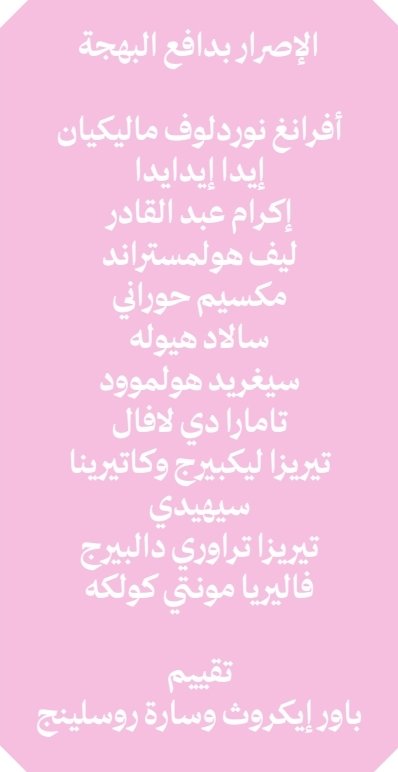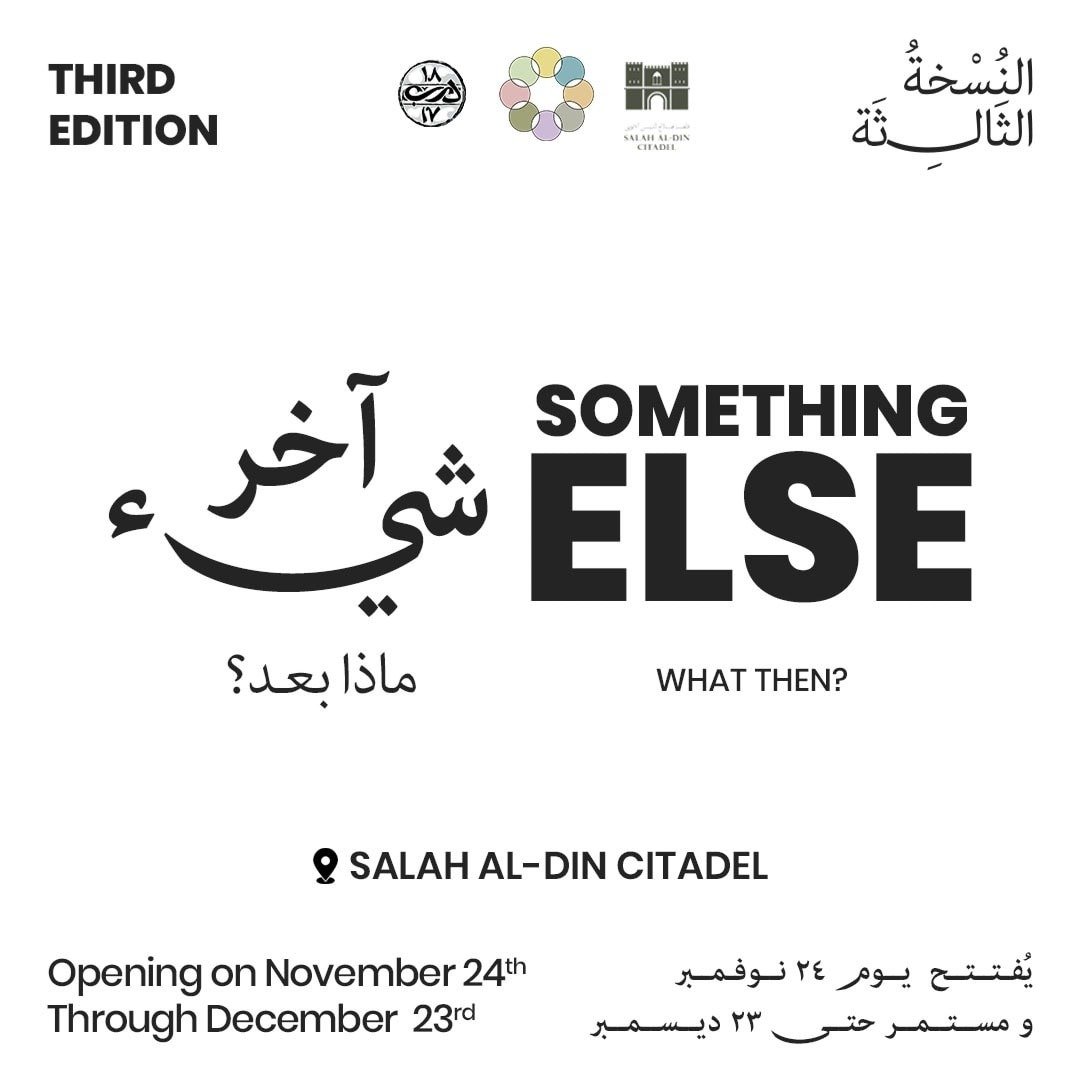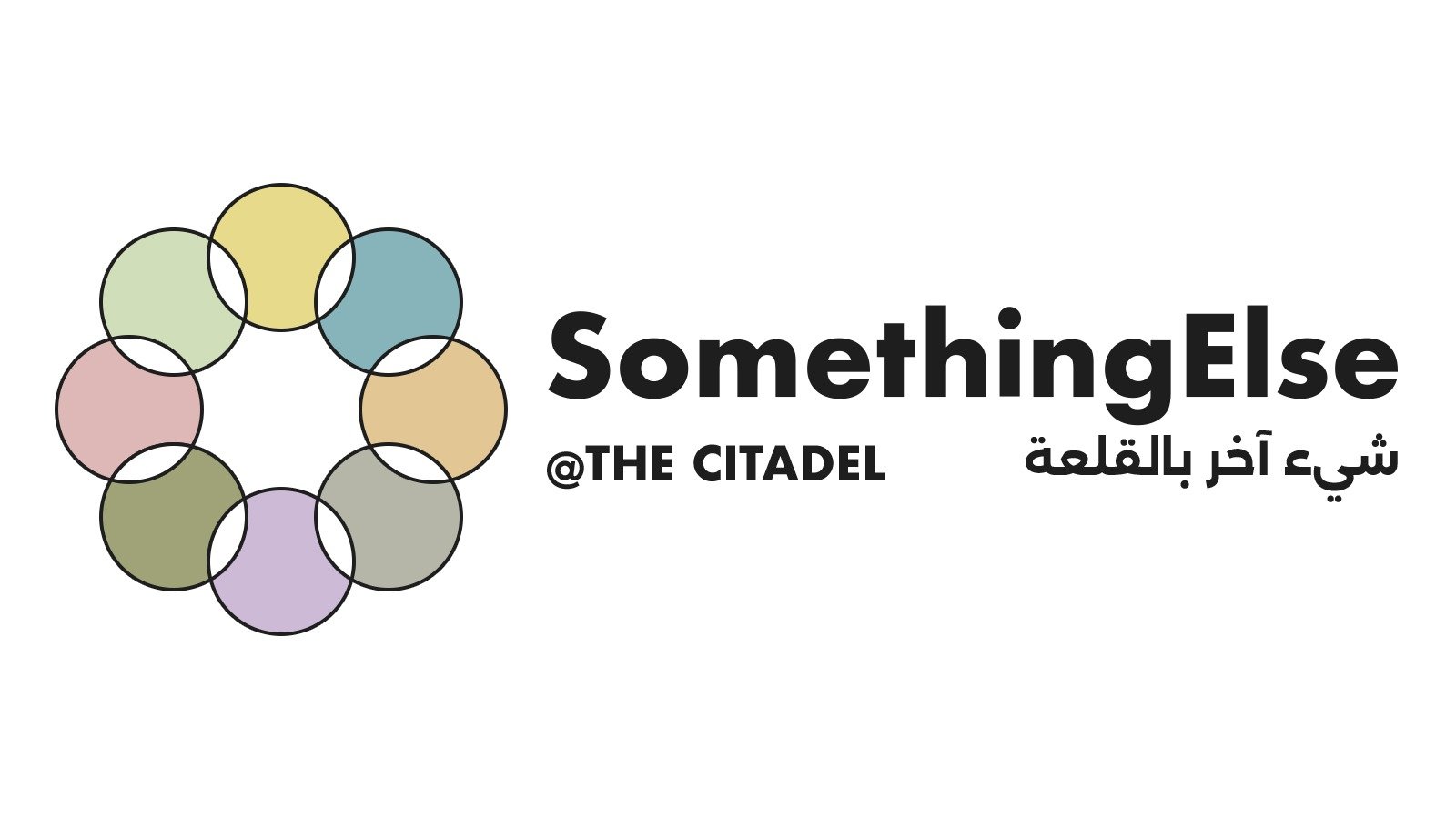PERSISTENCE THROUGH JOY
an exhibition within the Nordic collaboration in the third edition of Something Else
Citadel, Cairo
The third edition of Something Else marked a change in the format from that of a biennial with uneven dates (that happened first in 2015 and secondly in 2018) to a annual large scale exhibition at the historic Citadel. All in all 140 artists from all over the world participated in the exhibition managed by Moataz Nasreldin of Darb 1718 and with head curator Simon Njami. The exhibition was entitled What Then?
The Nordic collaboration was hosted in one of the building at the vast complex of the citadel, and entailed three exhibitions and a performance program. Leif Magne Tangen from Norway, Birta Gudjunsdottir from Iceland and the curatorial team Power Ekroth & Sara Rossling from Sweden curated each their exhibition and Hanna Wildow organized a performance program. The collaboration is manifested with a joint catalog with texts about each exhibition and images from the installations, designed by Engy Aly and Hanna Bergman.
The participation of nearly 40 artists from the Nordic countries was made possible with generous support from the Swedish Arts Council, IASPIS/Konstnärsnnämnden The Swedish Arts Grants Committee, the Embassy of Sweden in Cairo, OCA Office for Contemporary Art Norway, Islands Hofunda MYND STEF, and Tromsø og Finnmark fylkeskommune.
Below you will find the digital catalog and images from the exhibition Persistence Through Joy, curated by Power Ekroth & Sara Rossling, with works by: Afrang Nordlöf Malekian, Ida Idaida, Ikram Abdulkadir, Leif Holmstrand, Maxime Hourani, Salad Hilowle, Sigrid Holmwood, Tamara de Laval, Theresa Lekberg & Kateryna Seheda, Theresa Traore Dahlberg and Valeria Montti Colque.
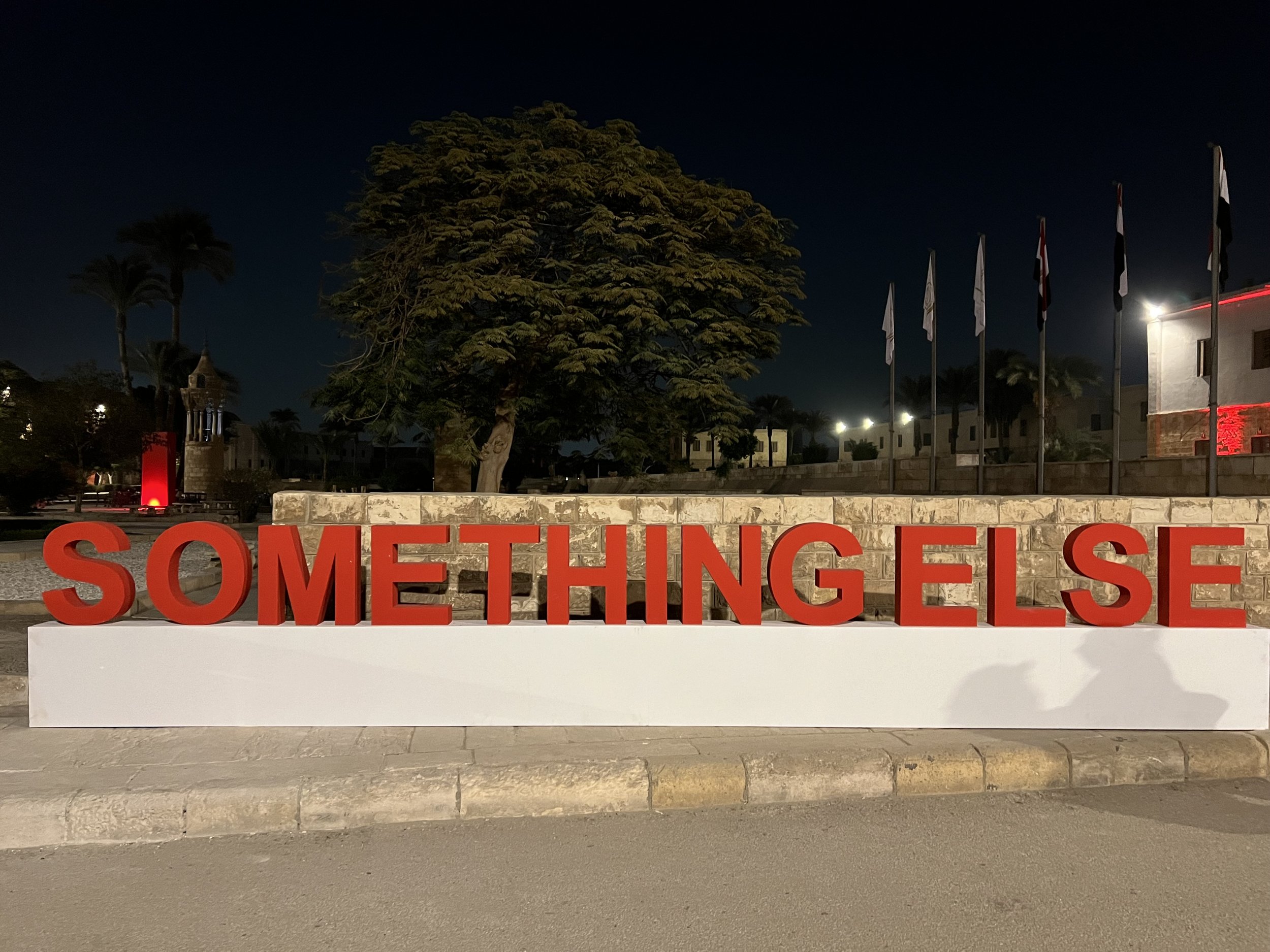
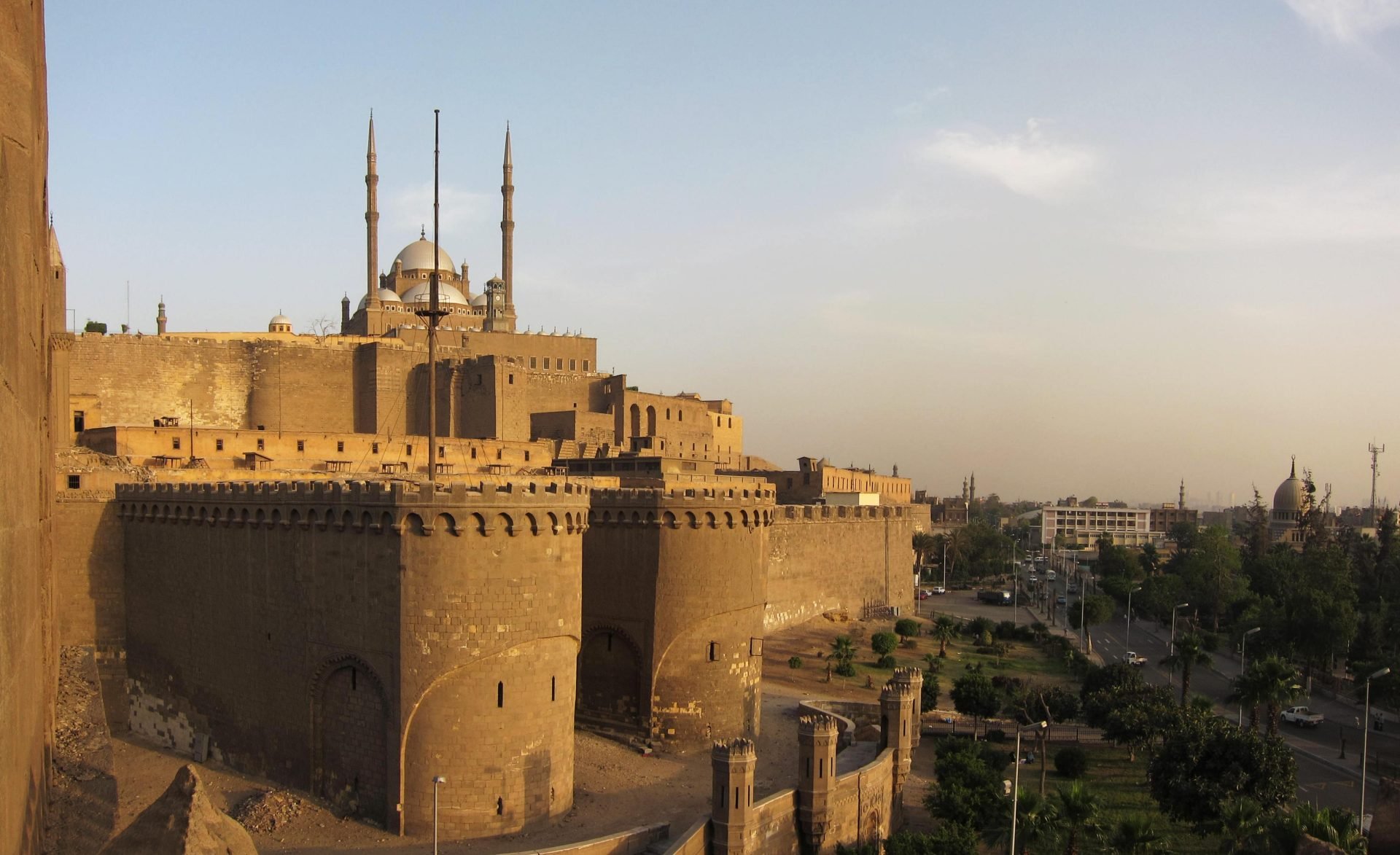
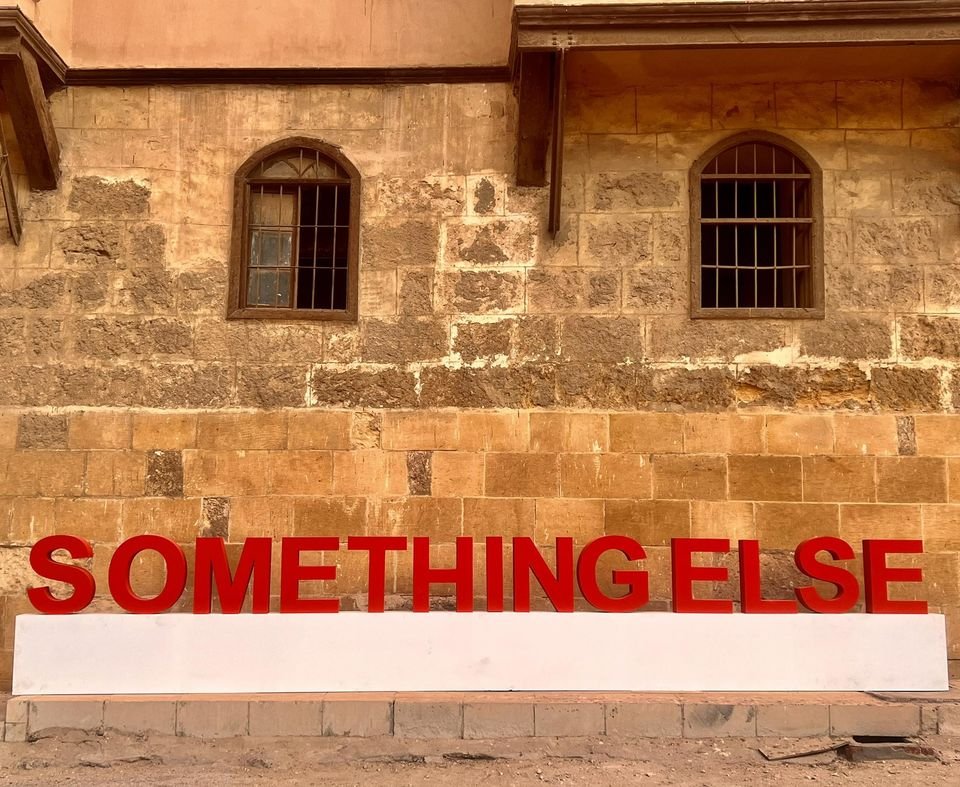
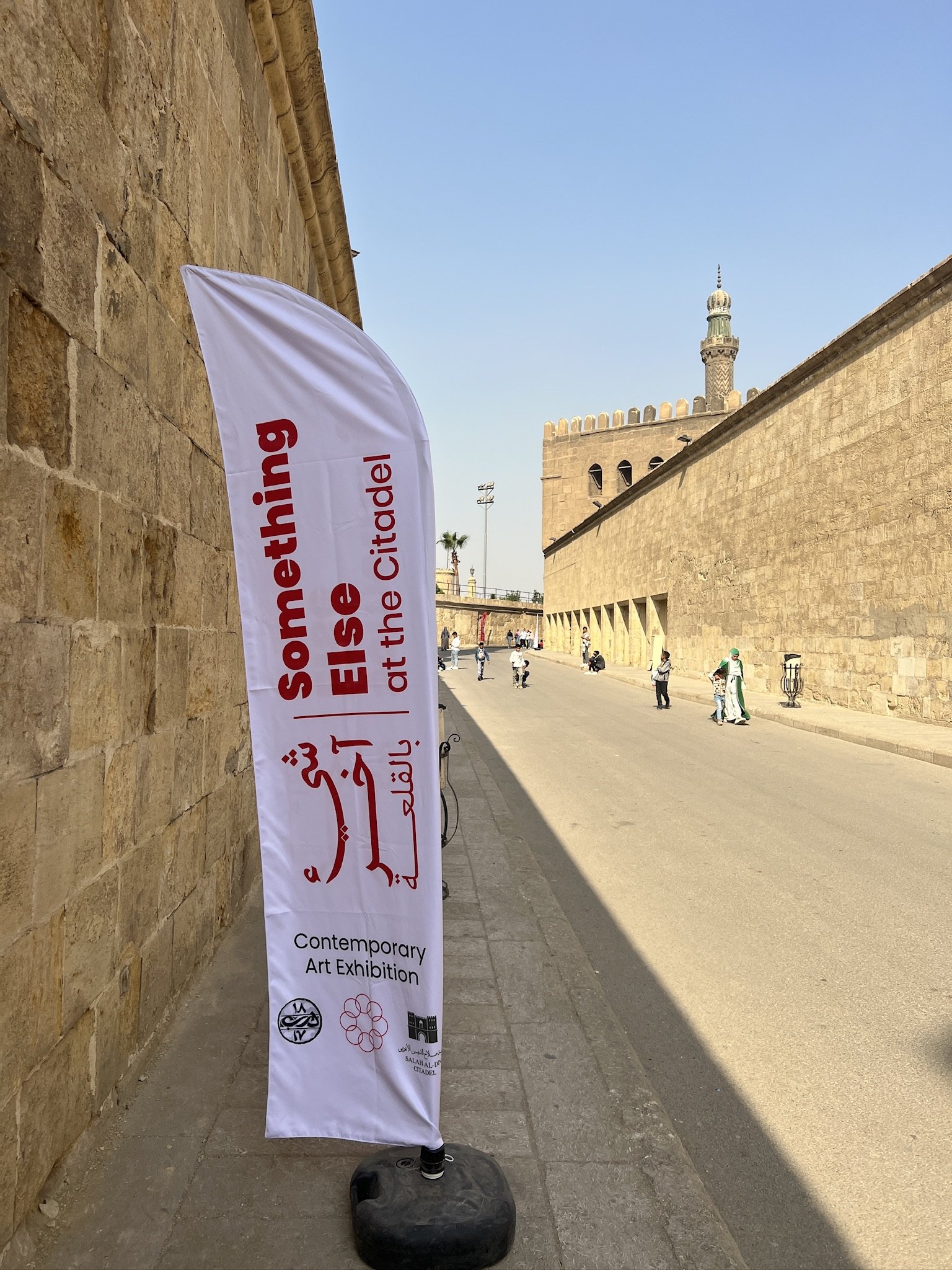
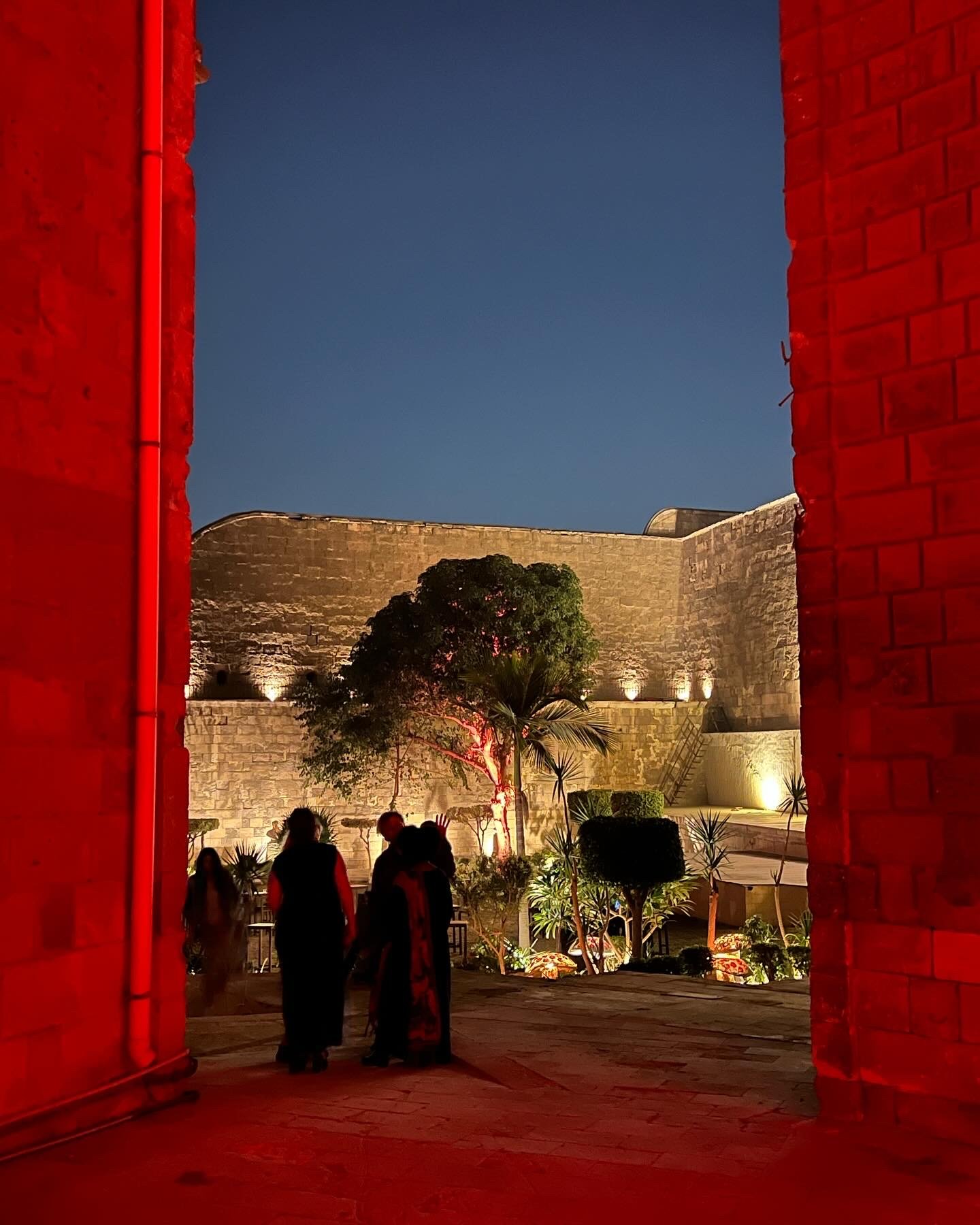
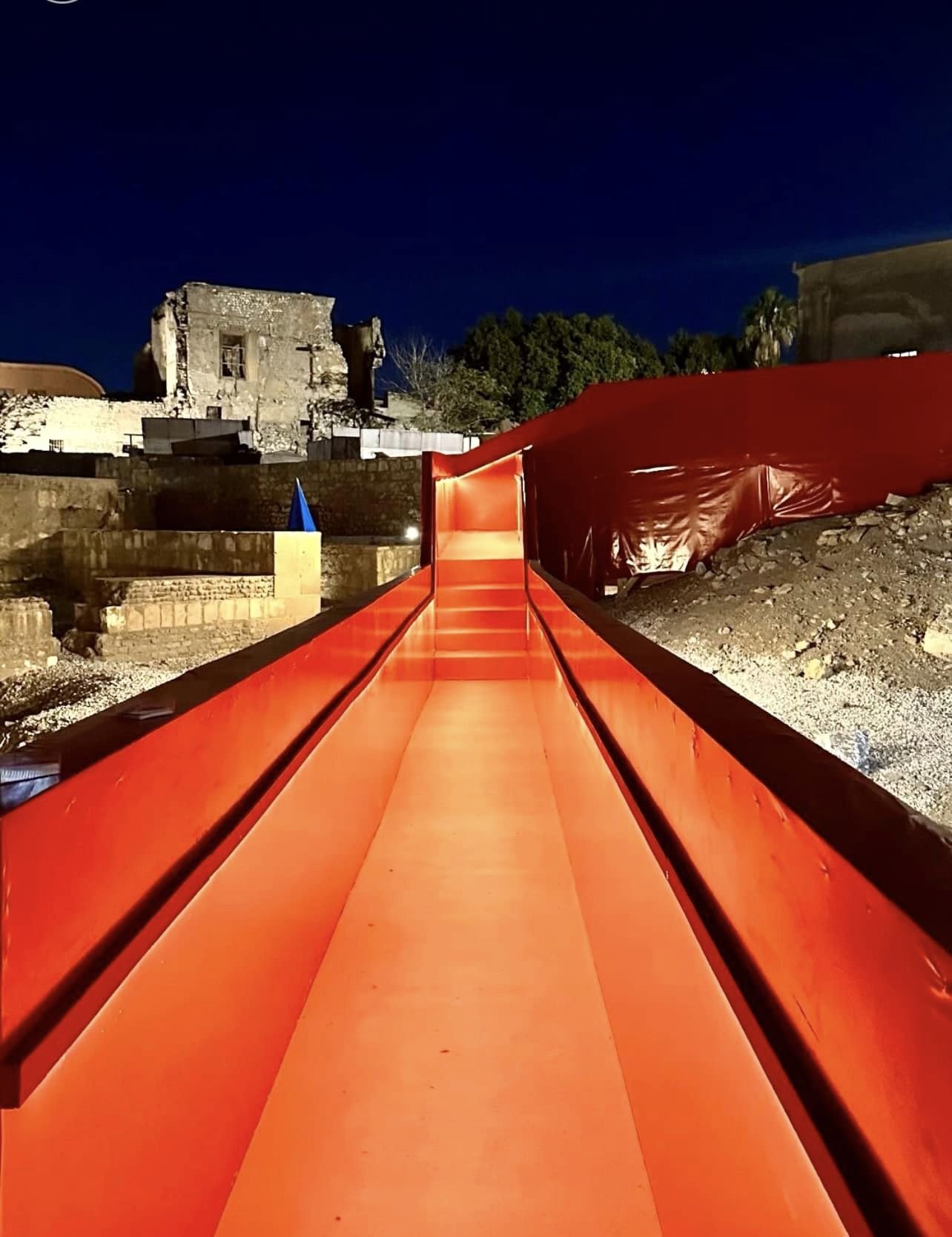
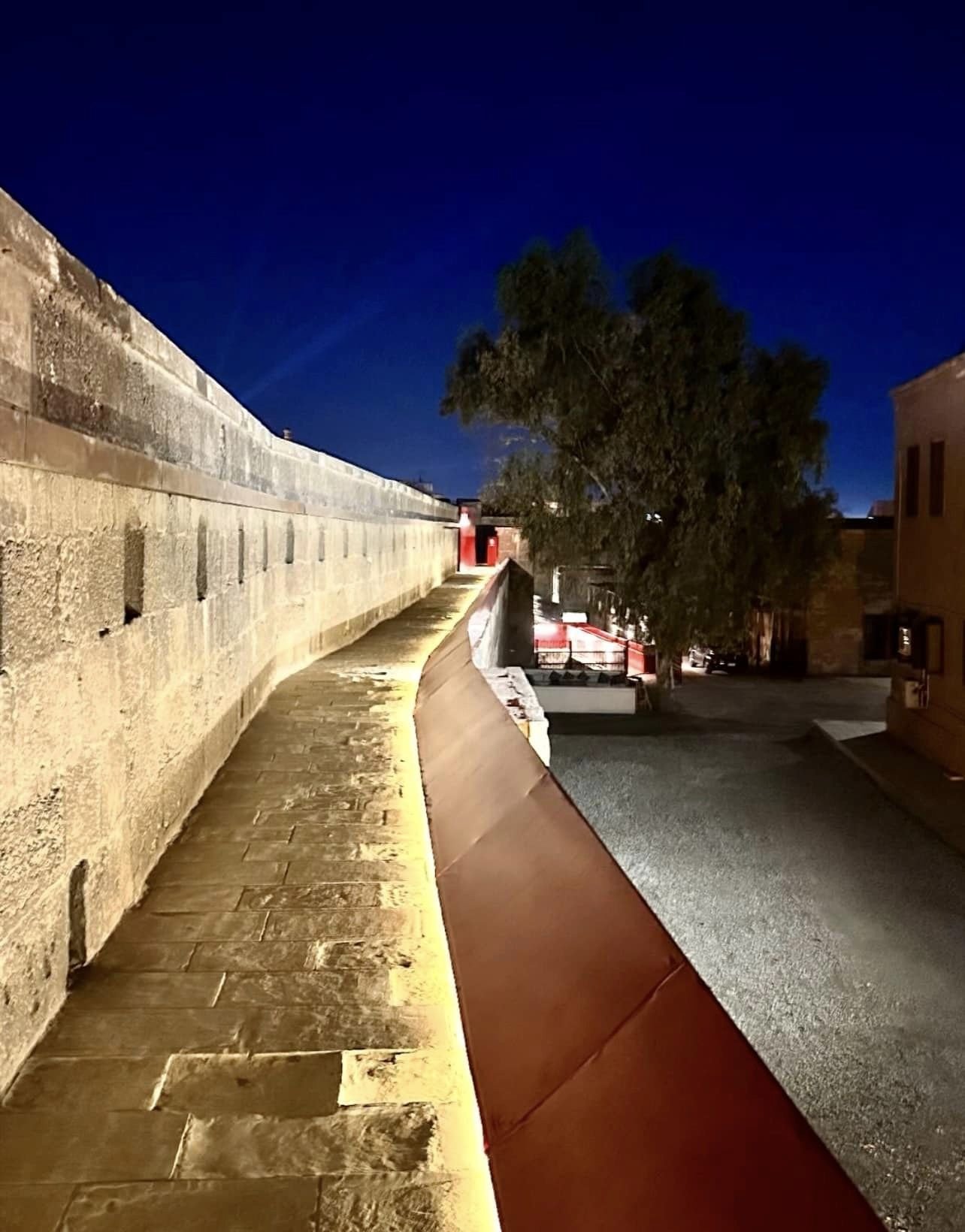
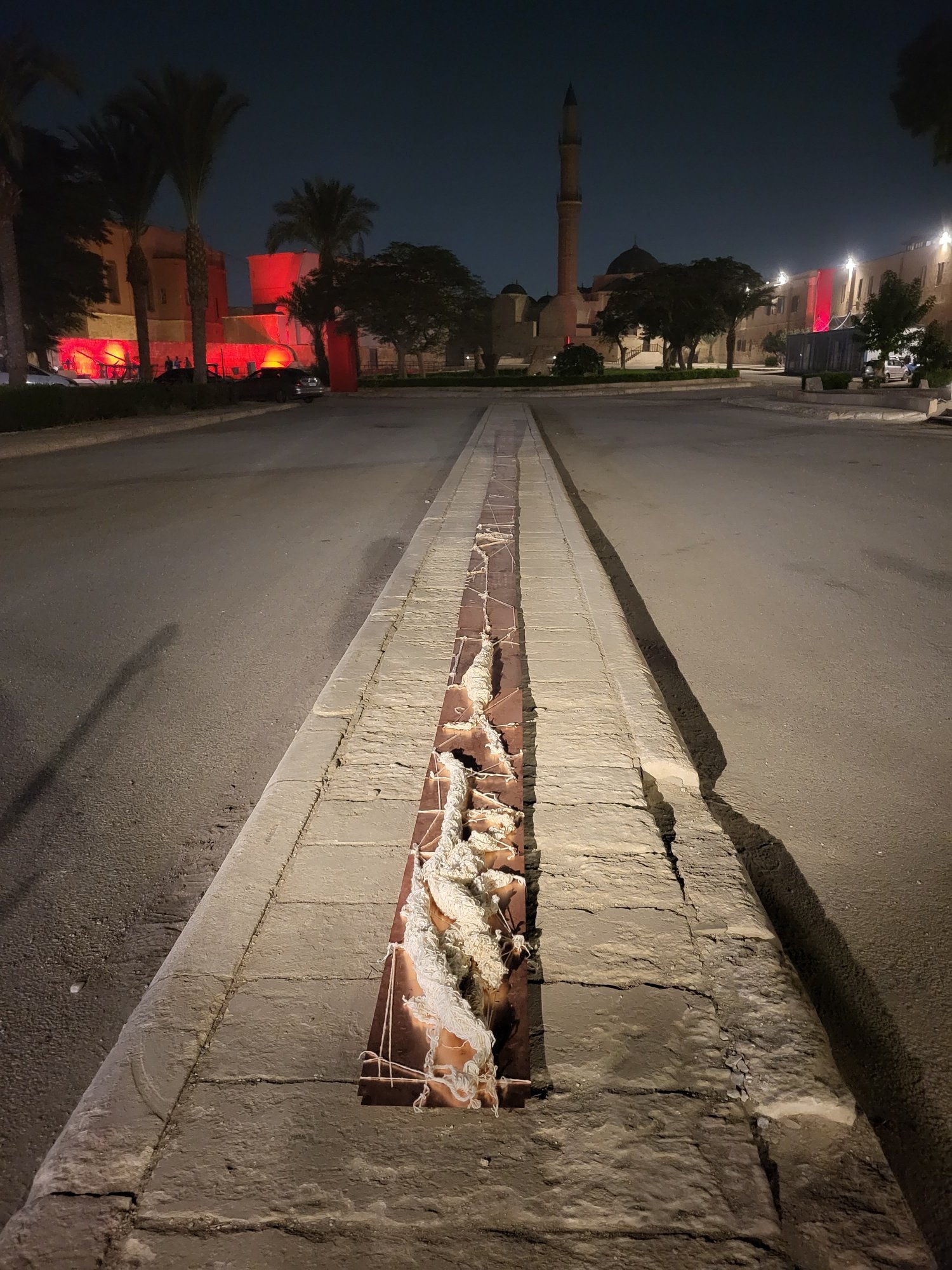
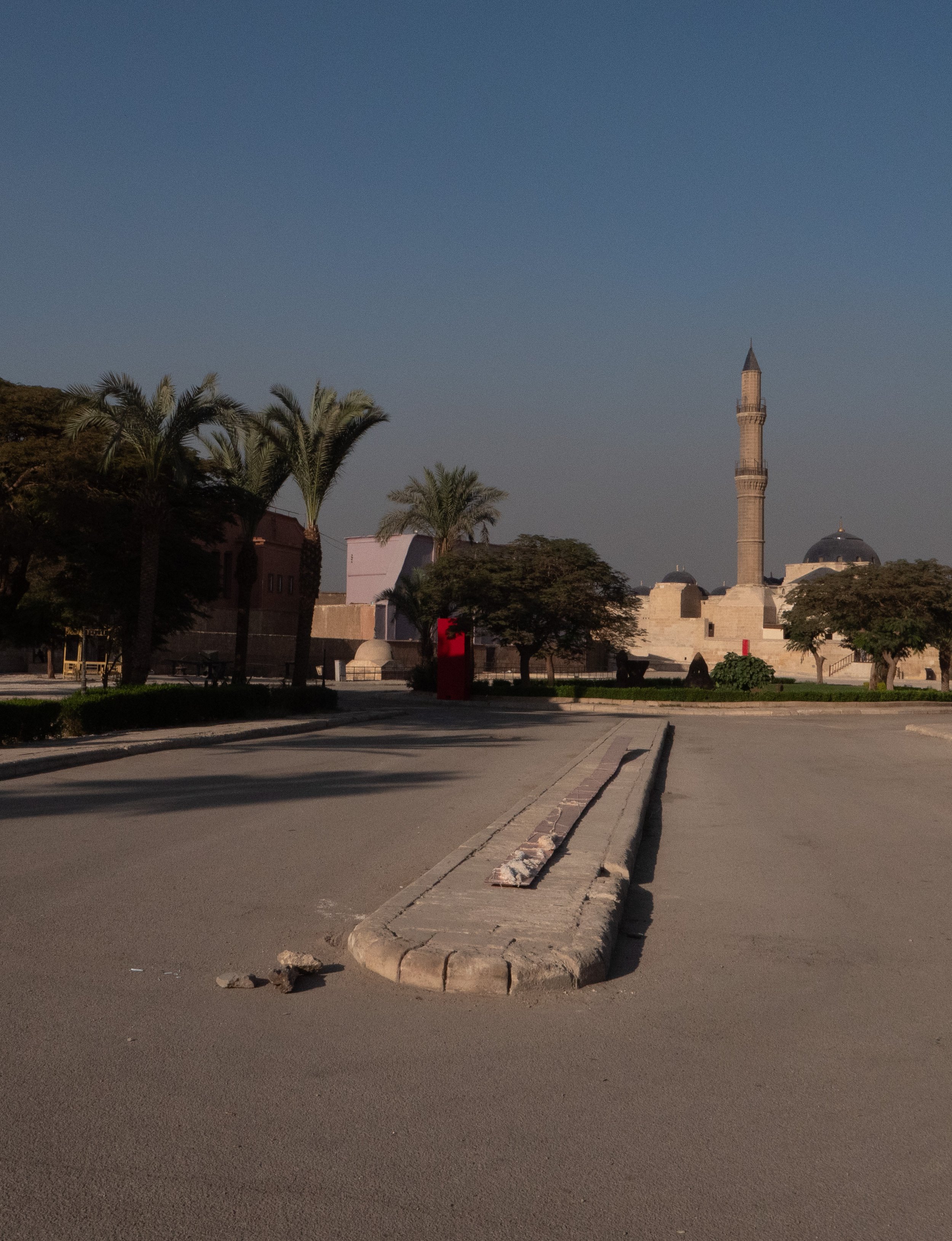
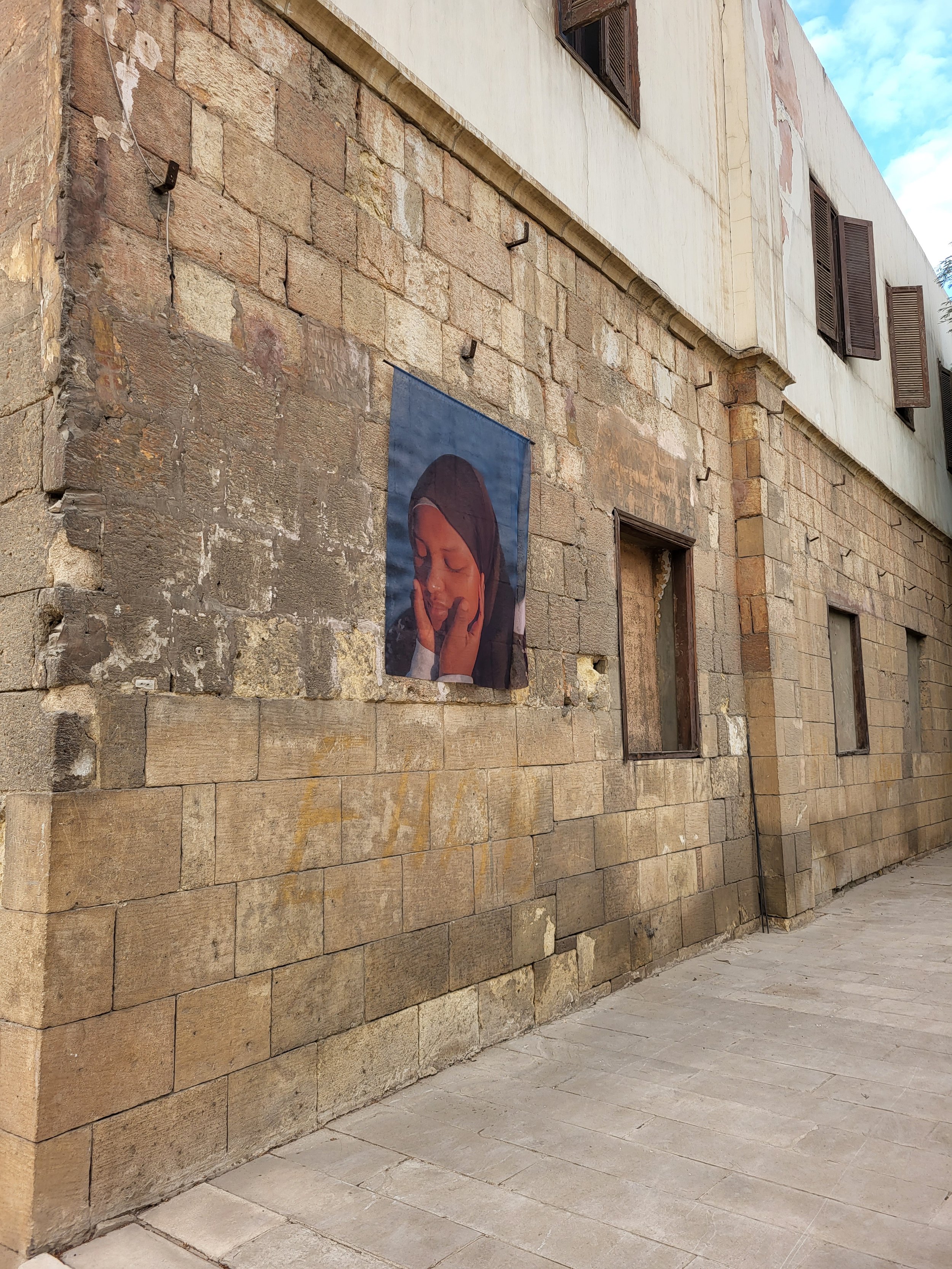
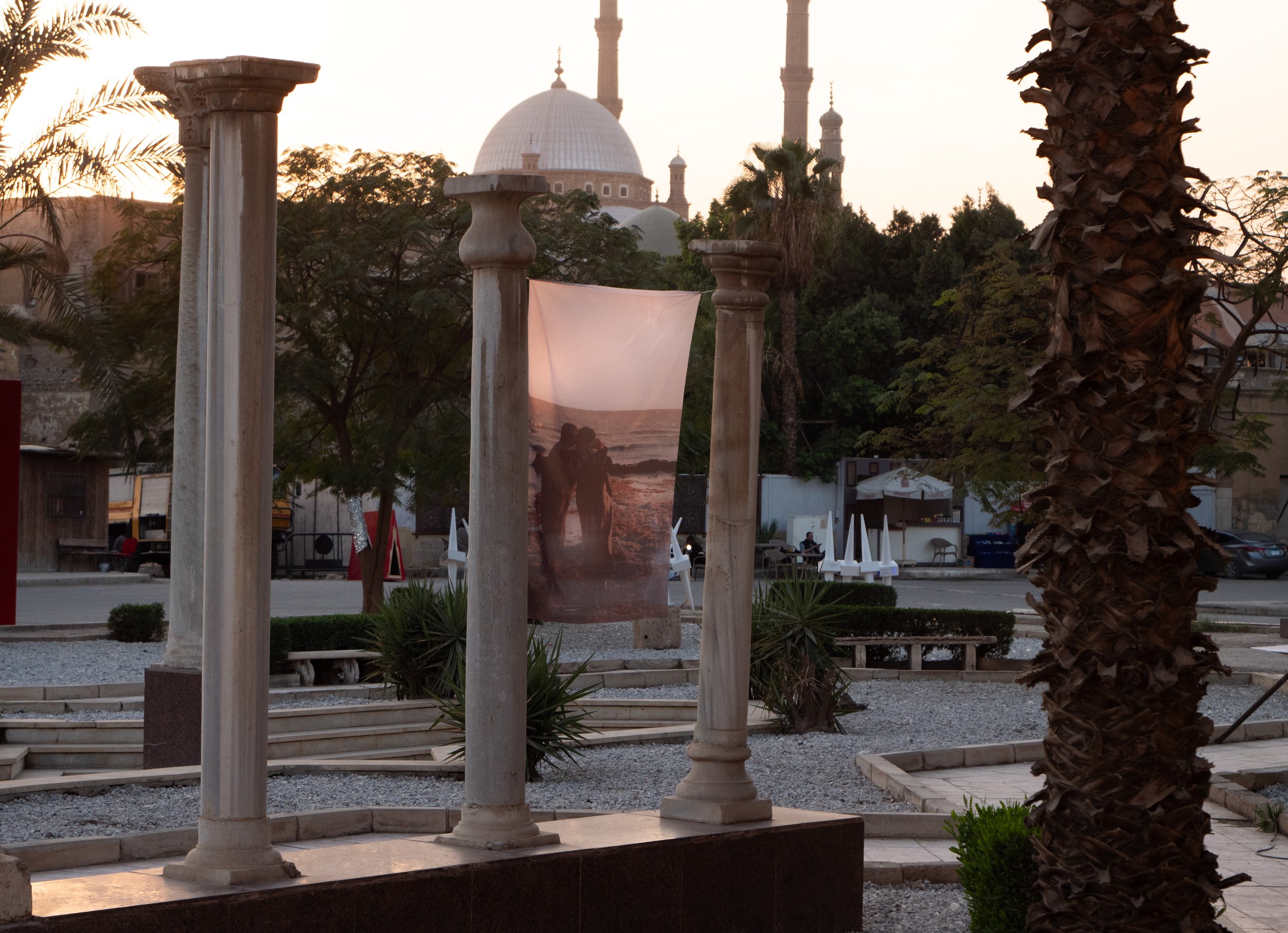
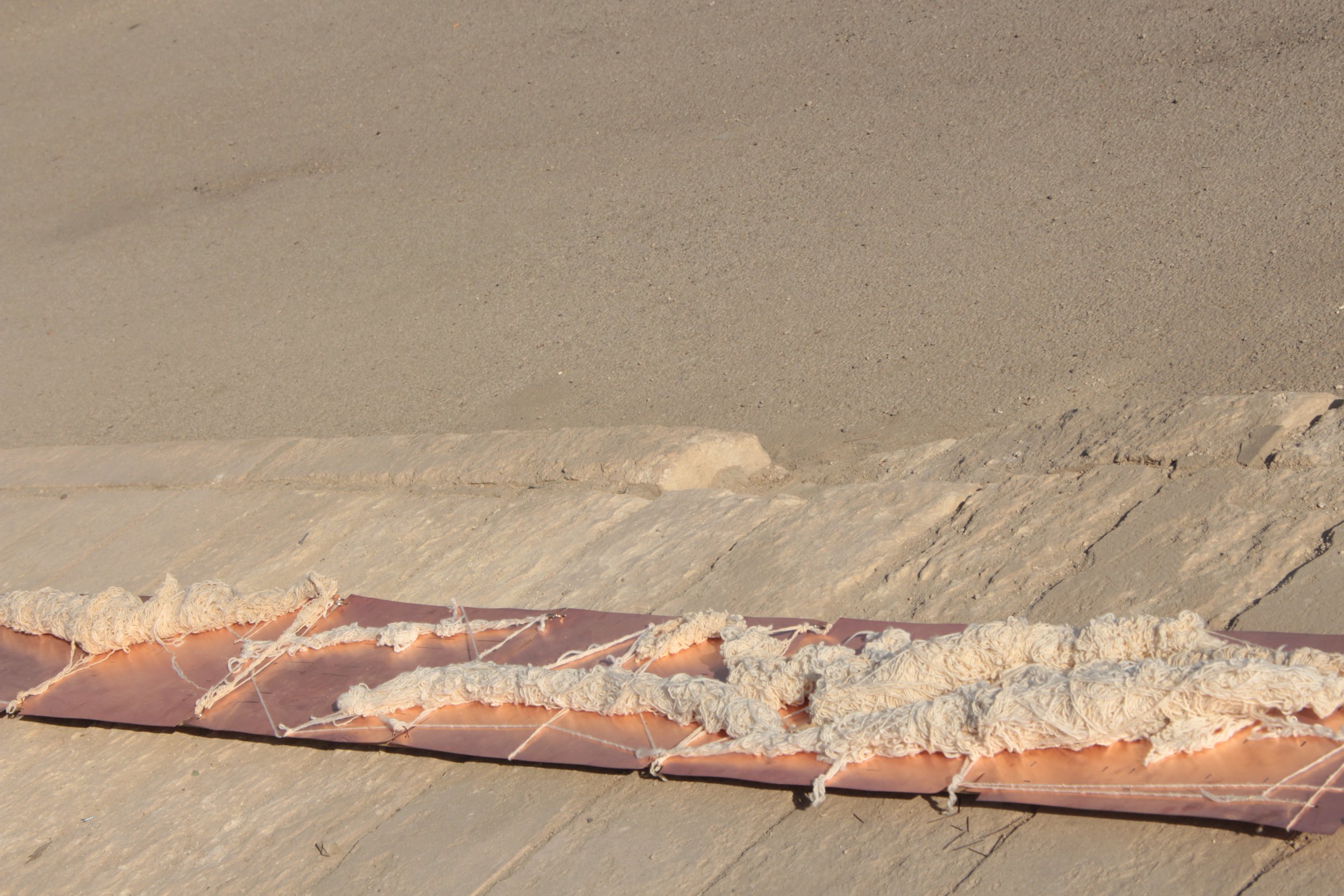
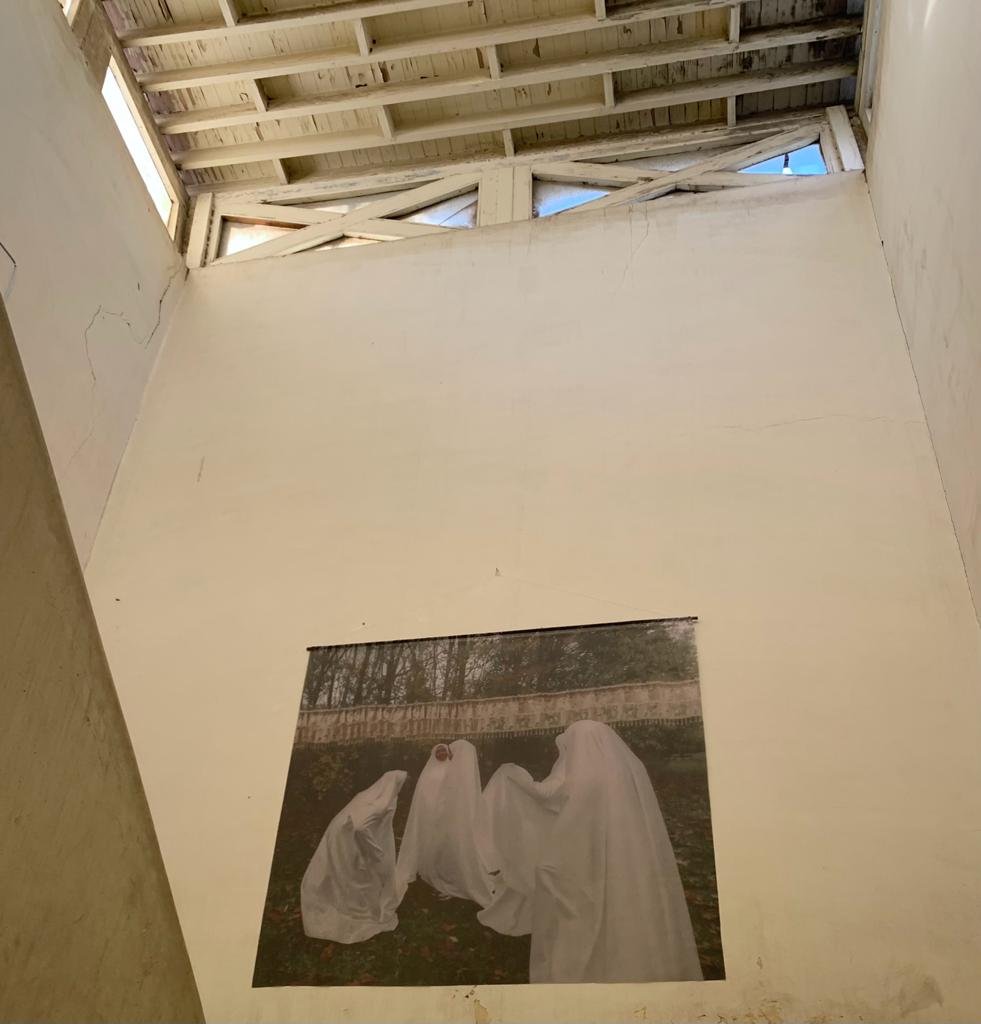
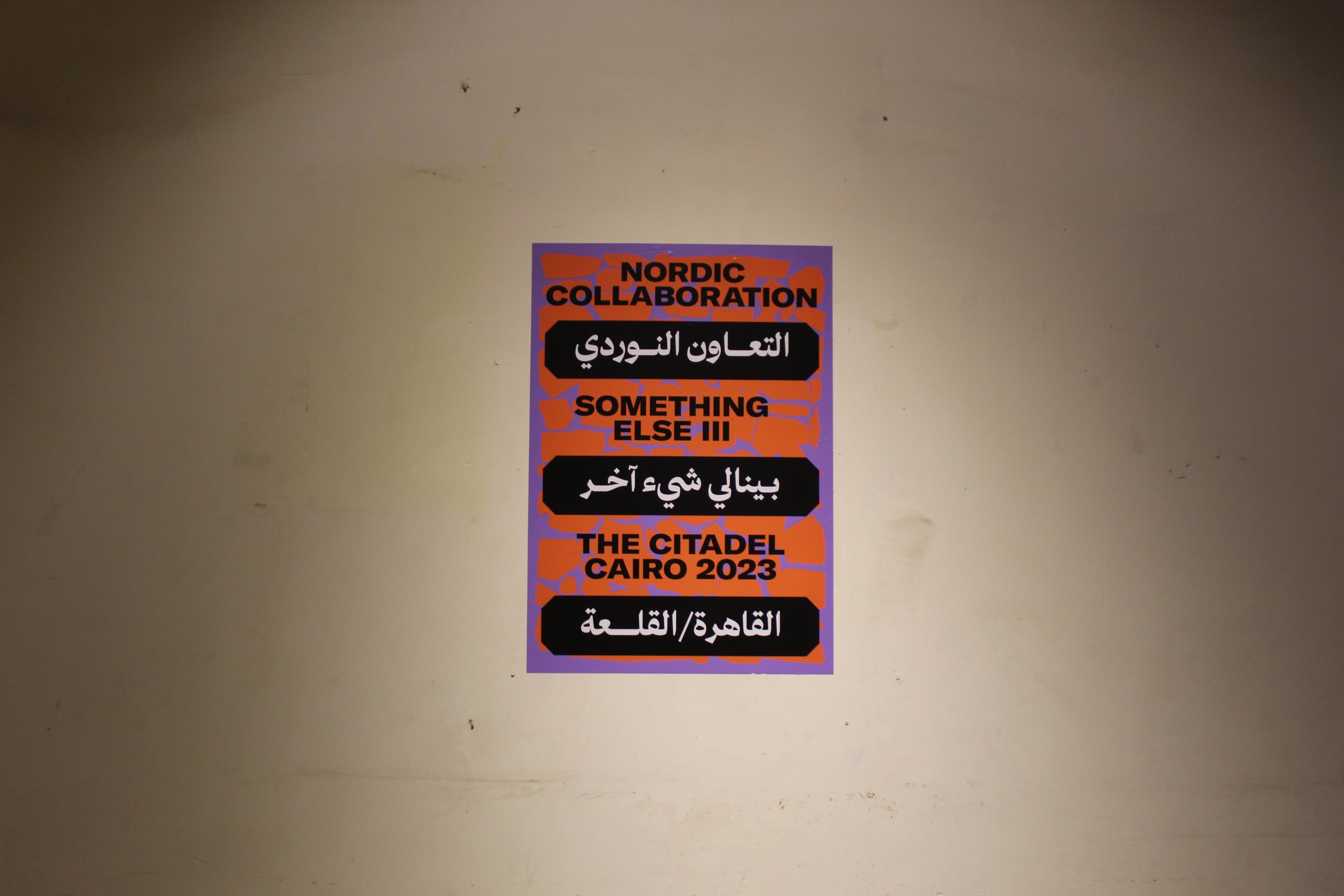
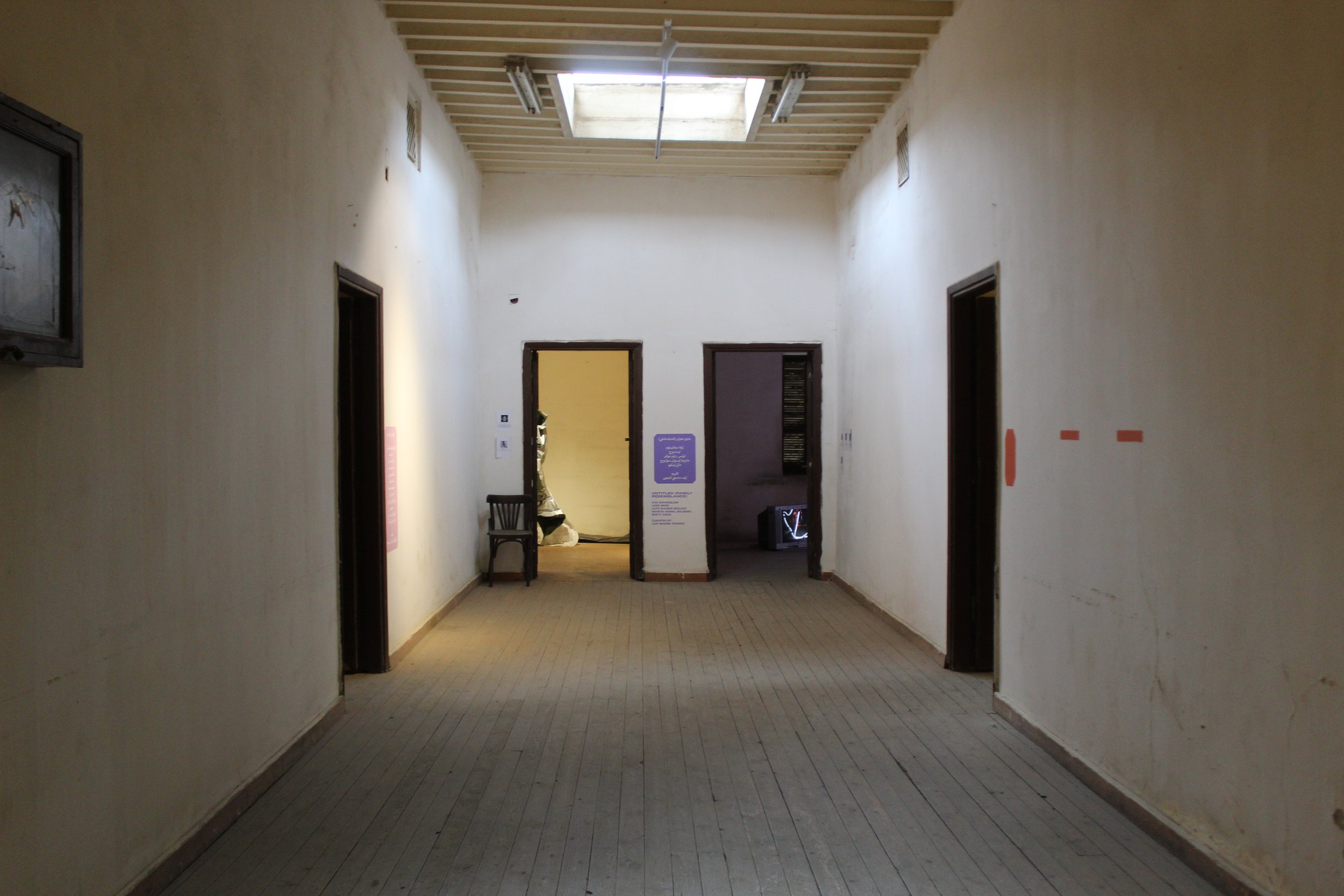
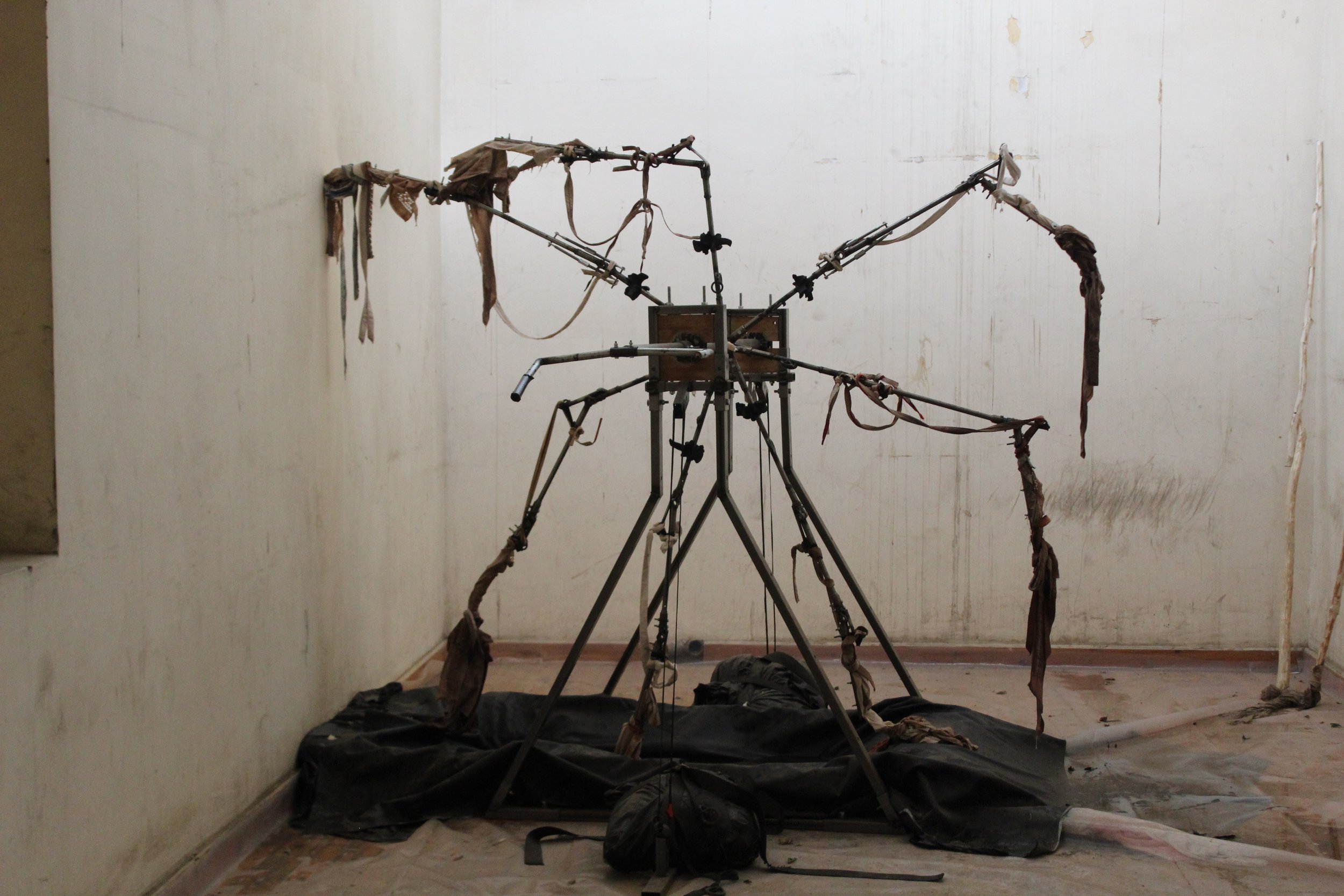
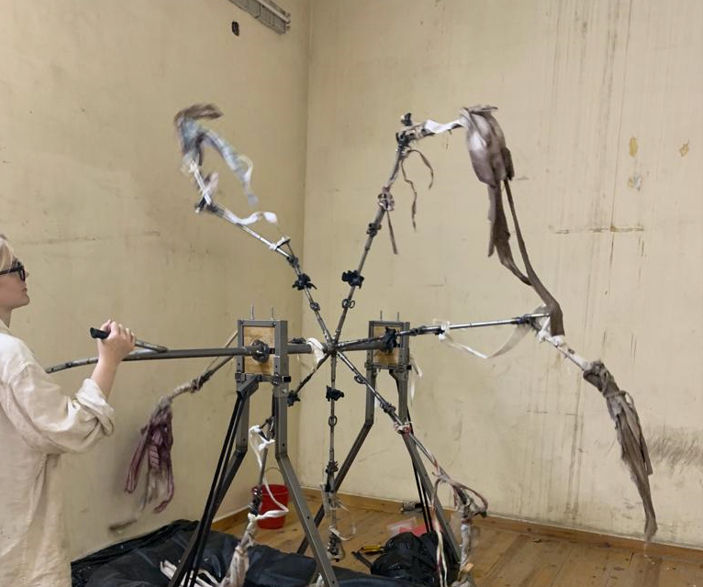
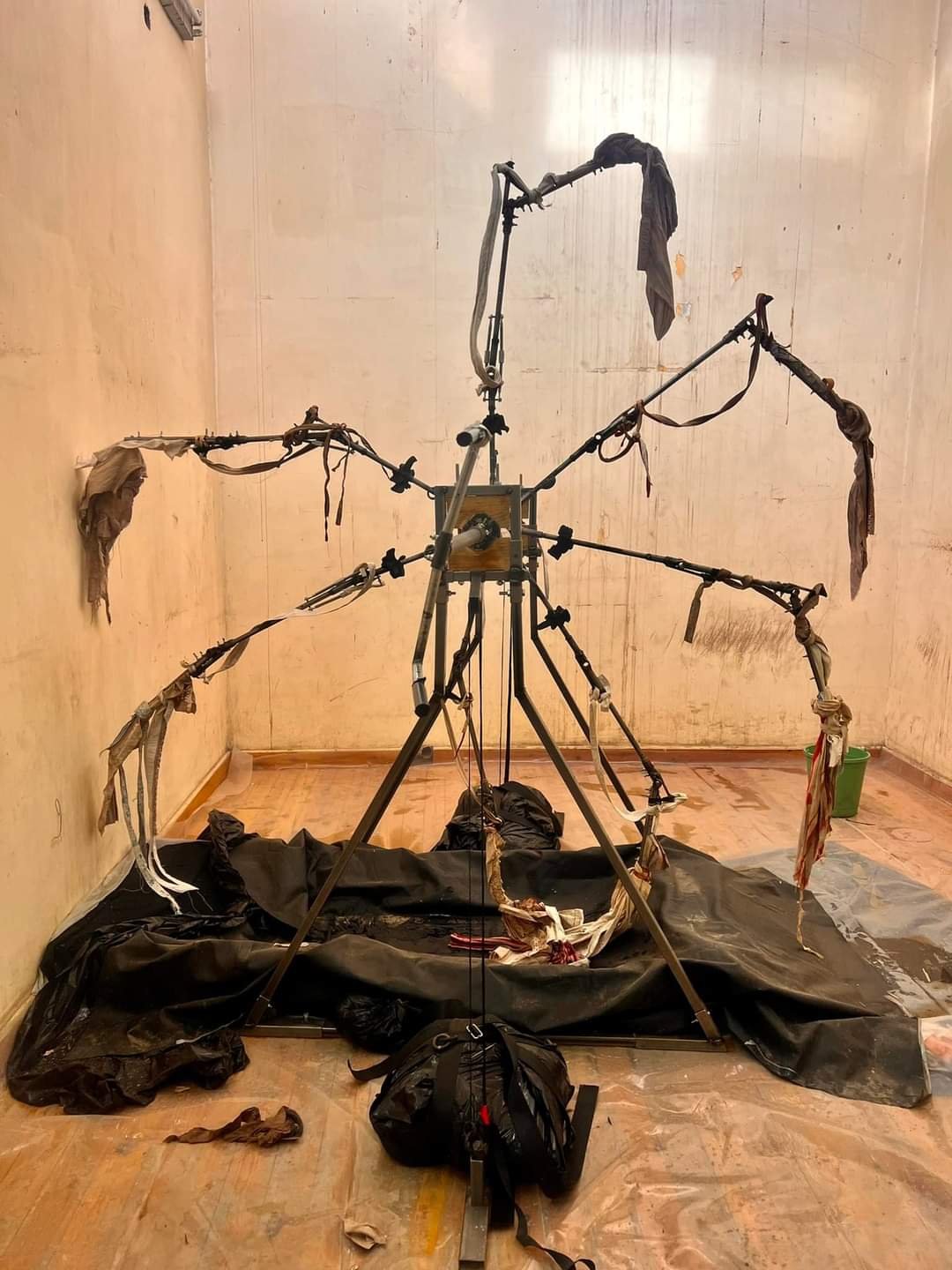
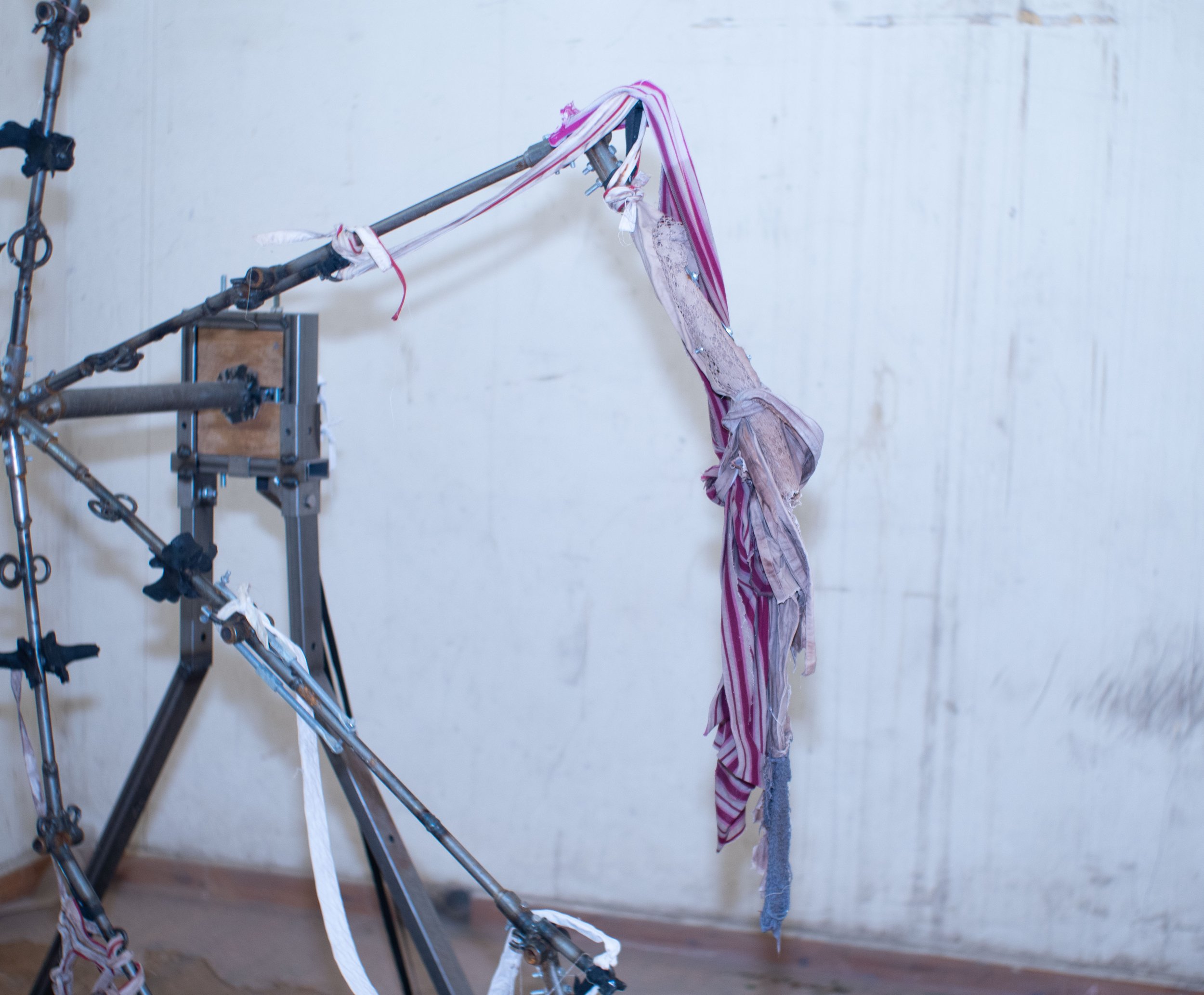
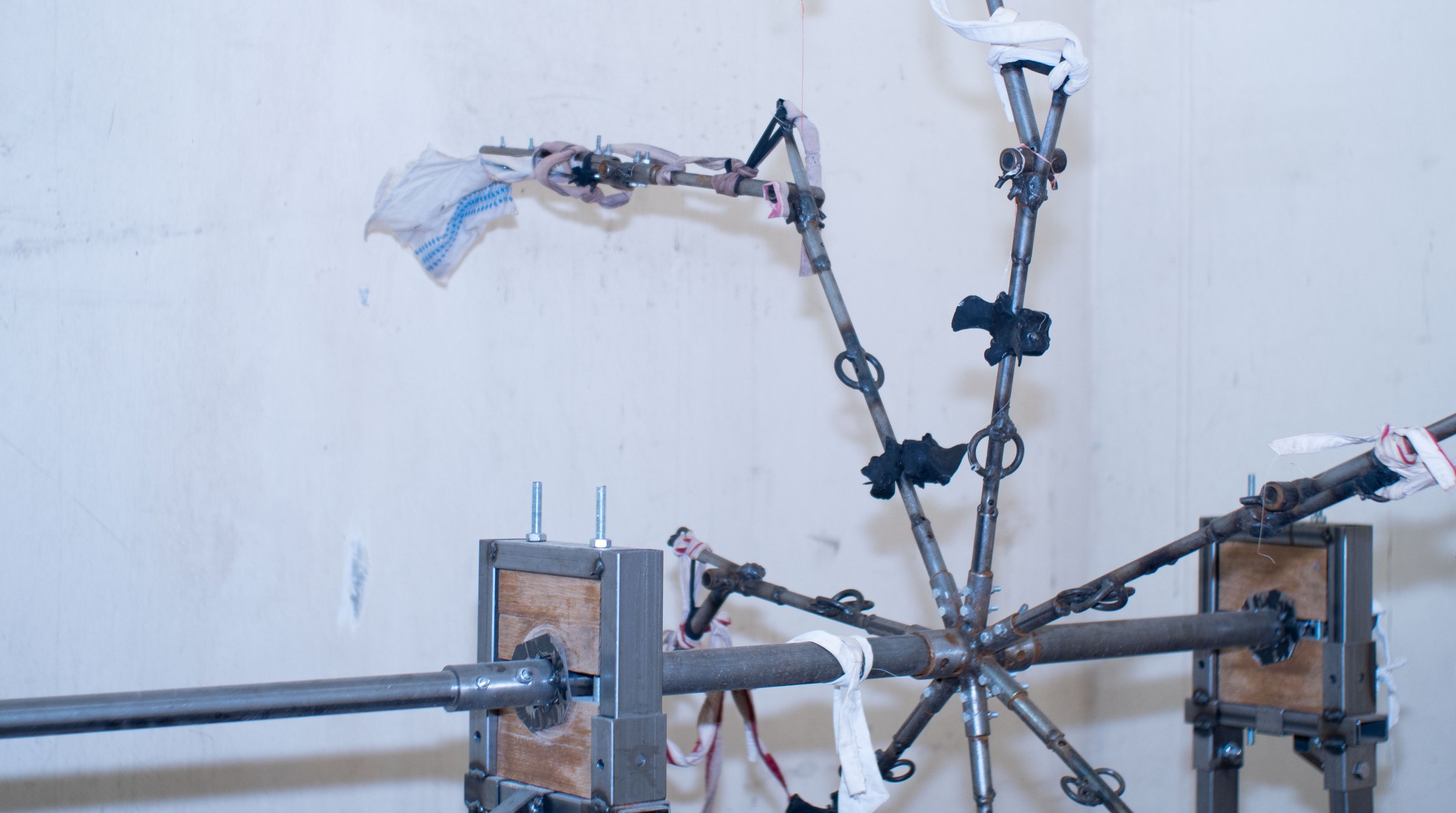
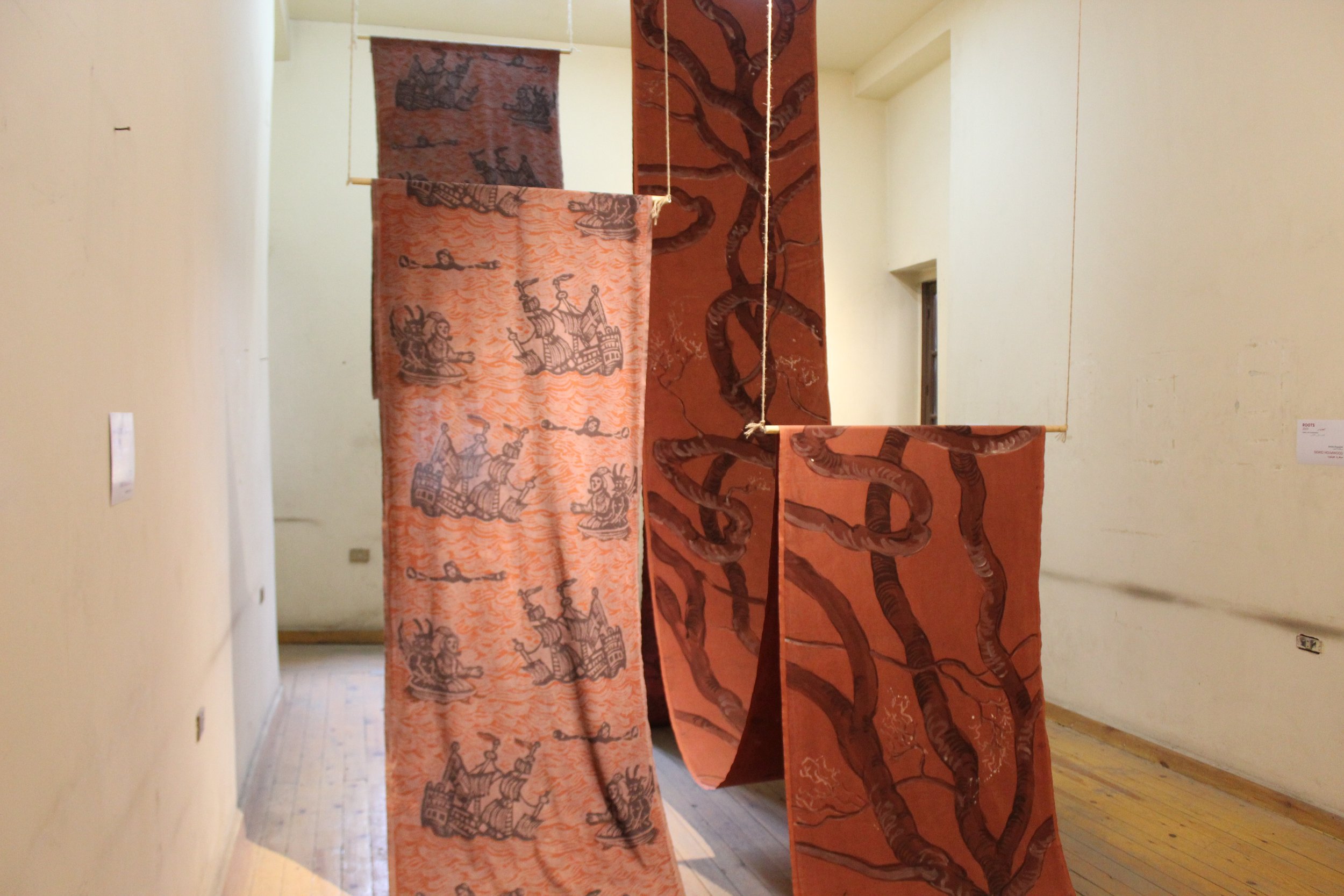
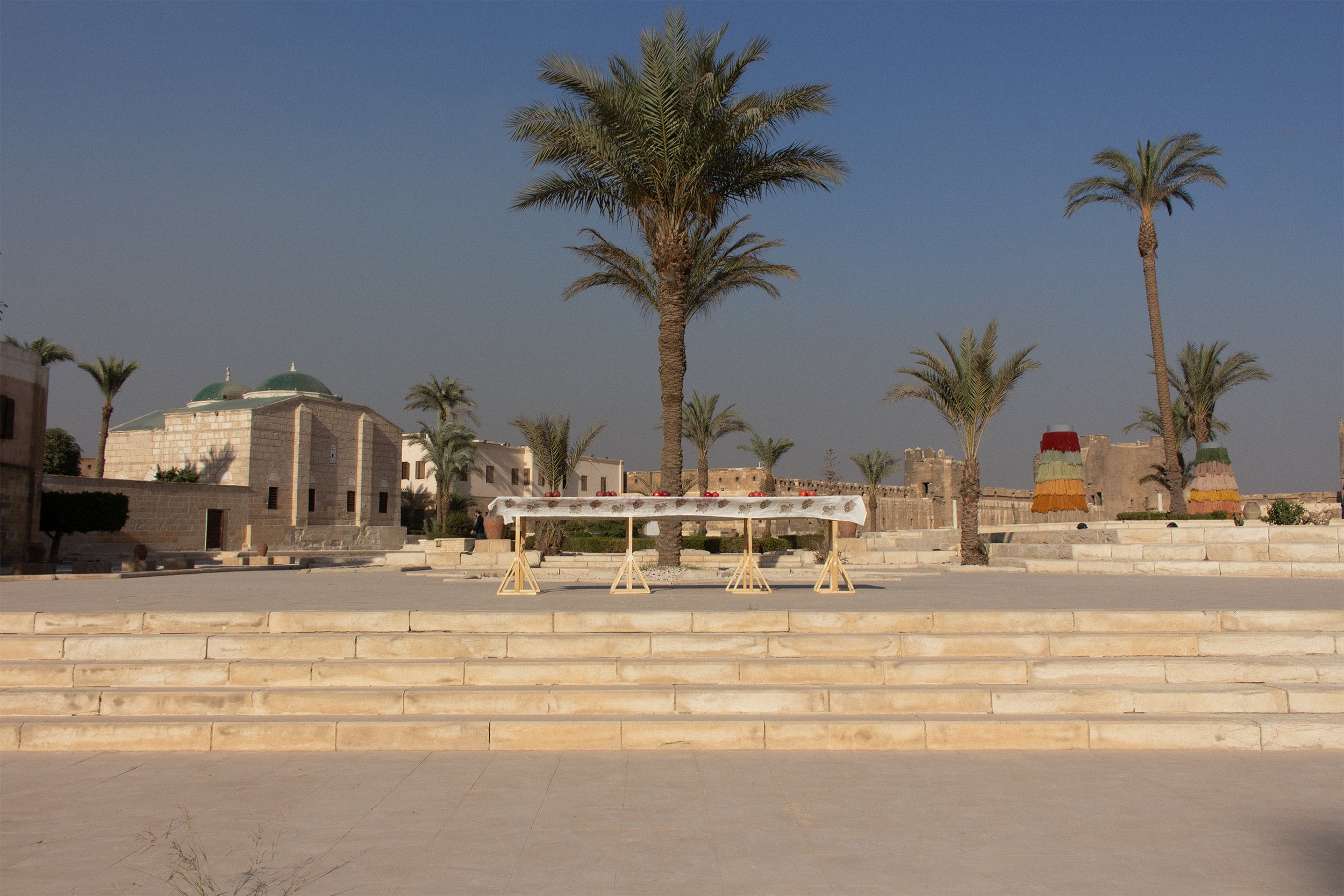
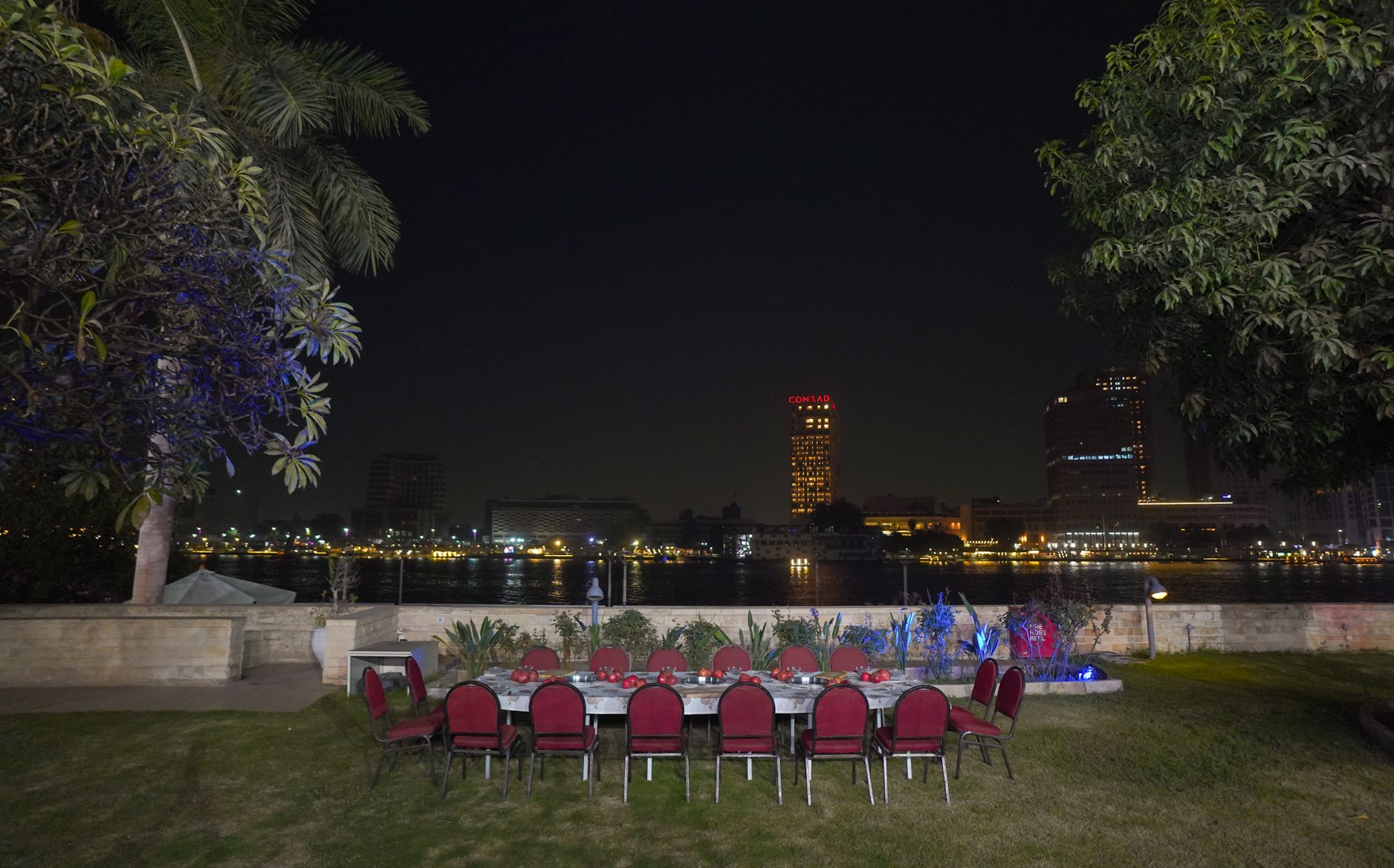
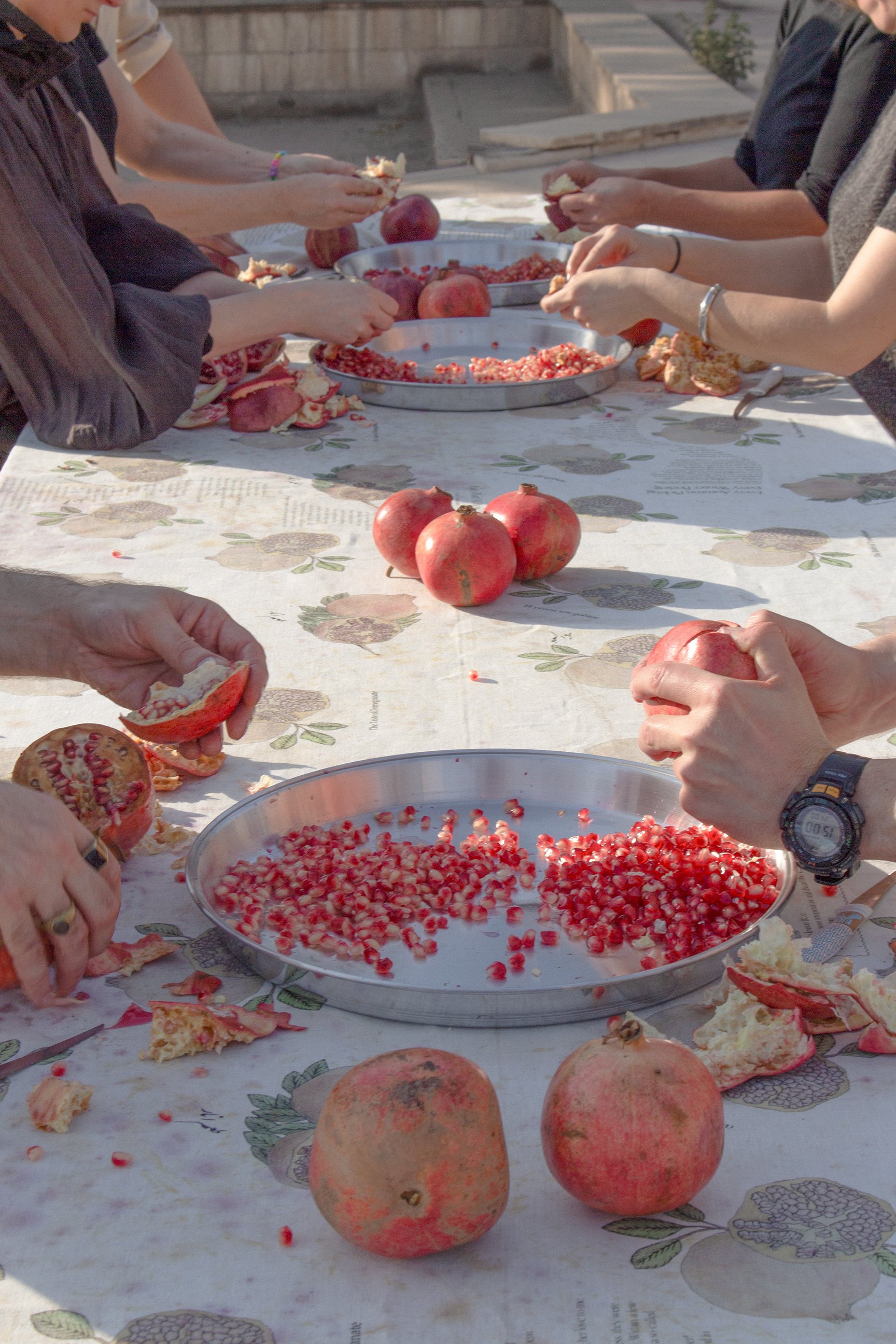
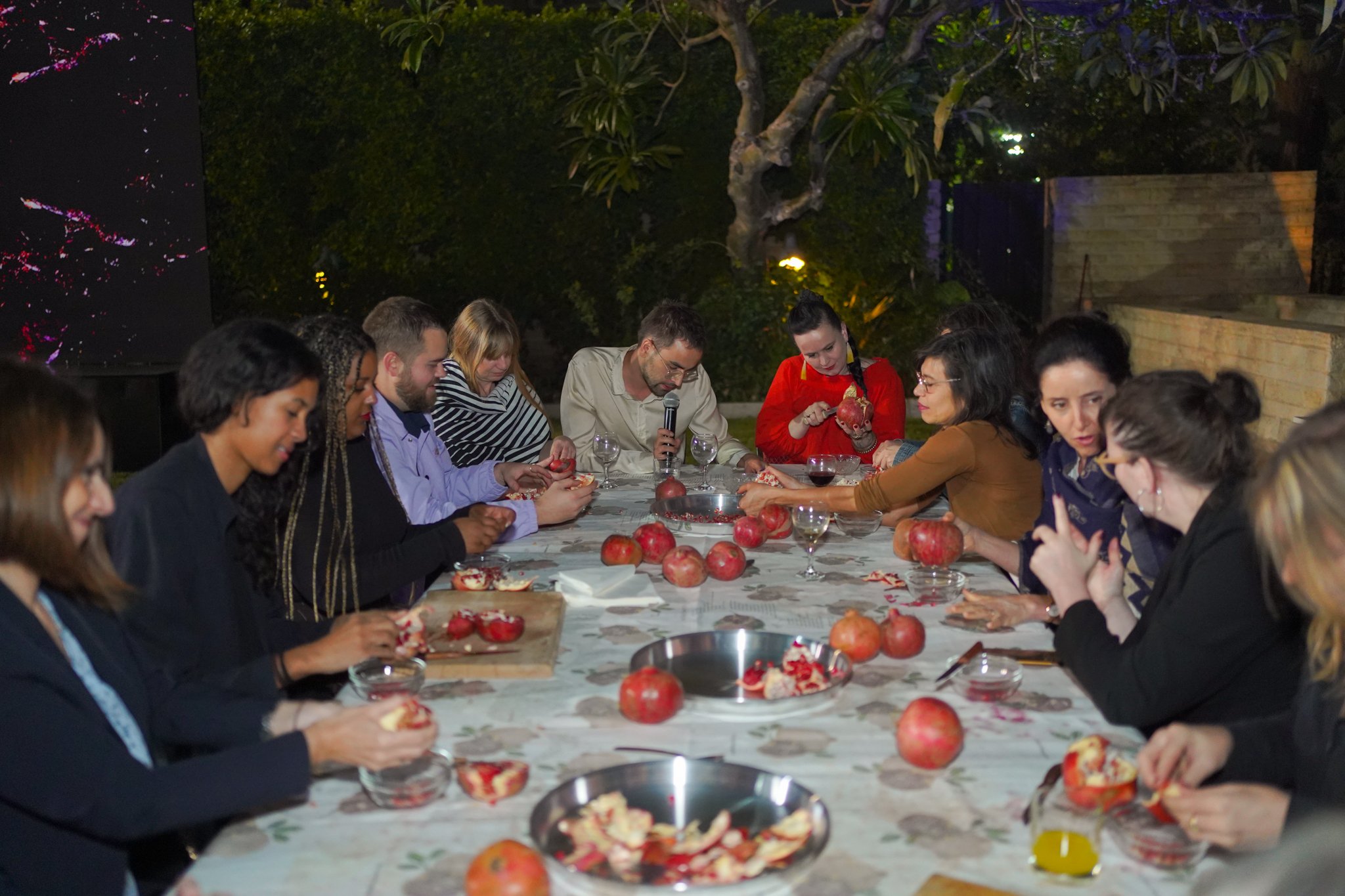
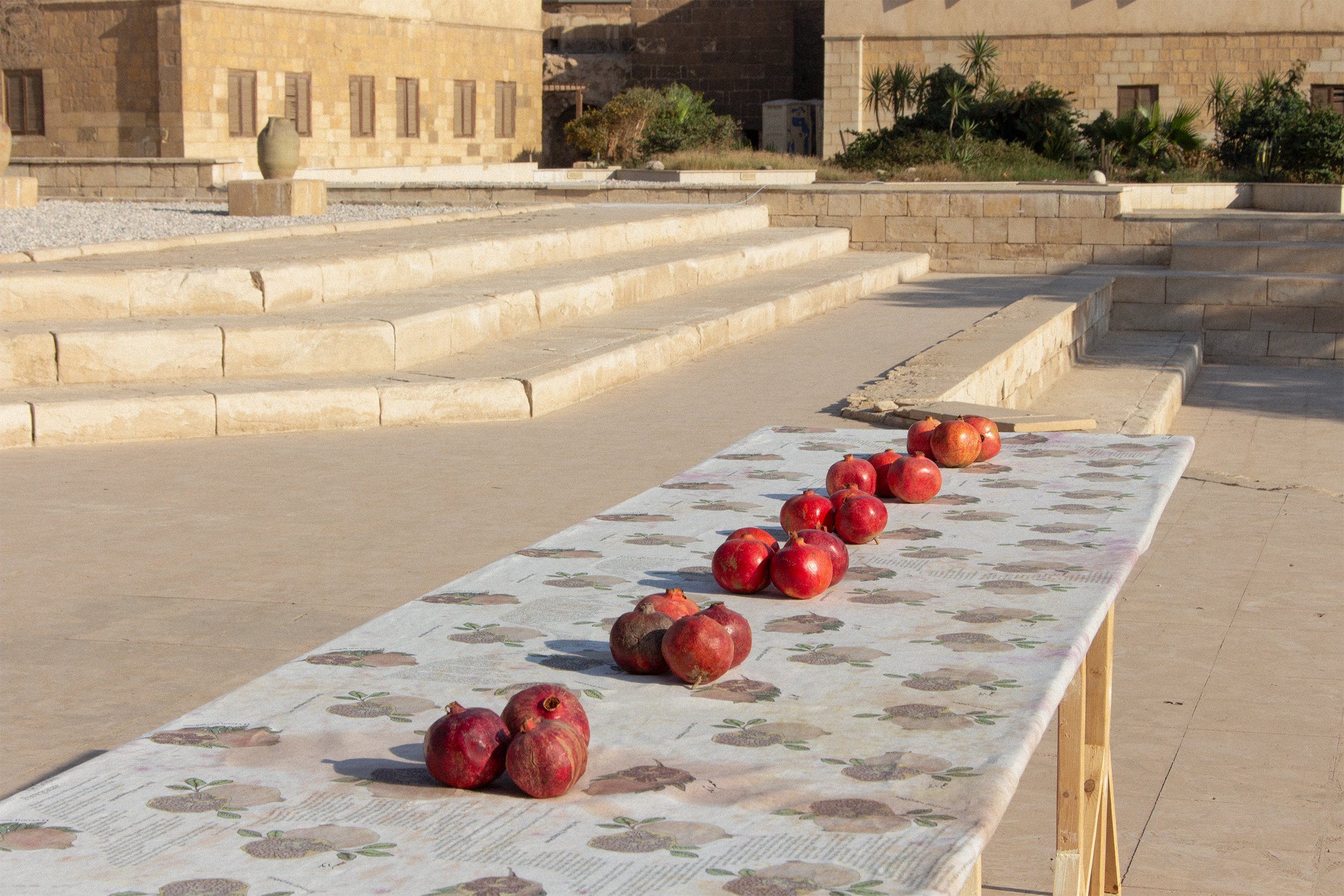
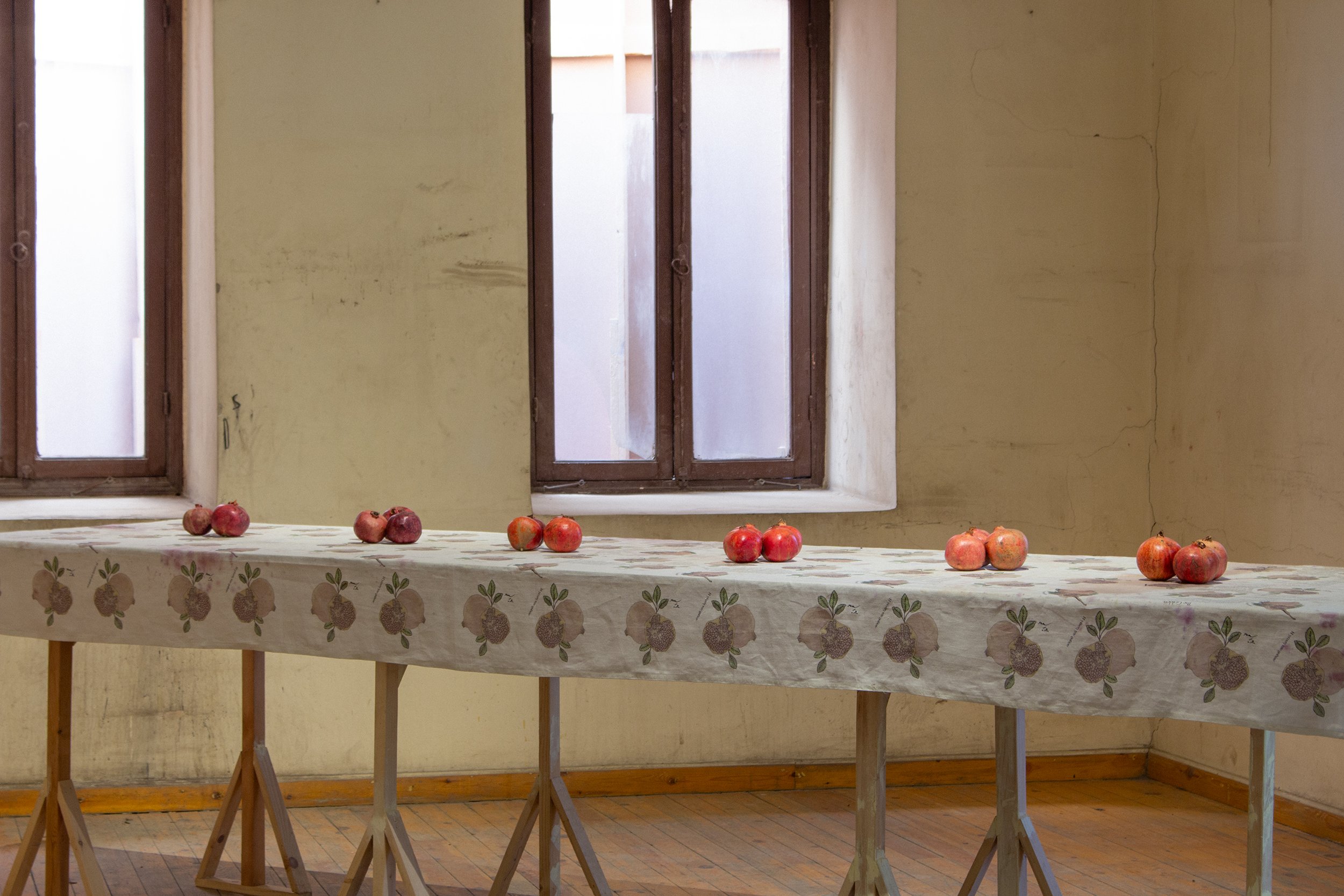
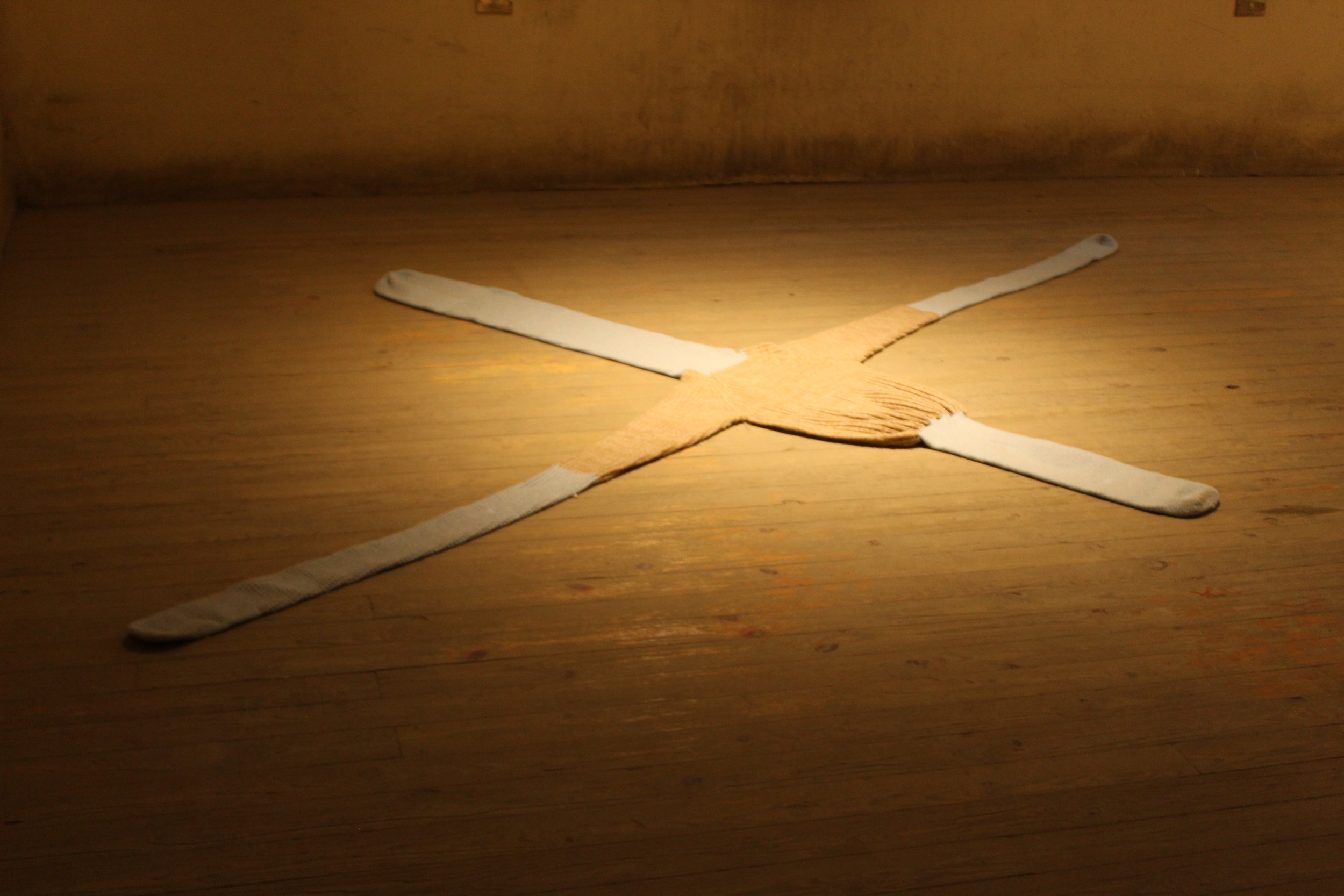
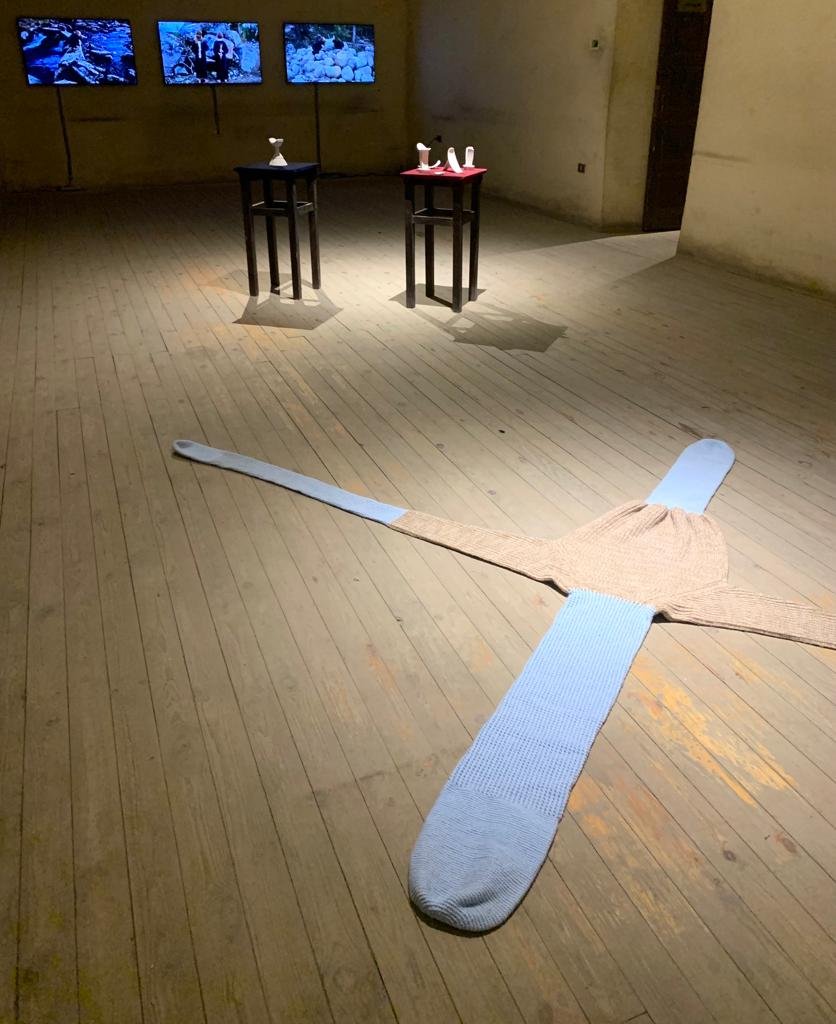
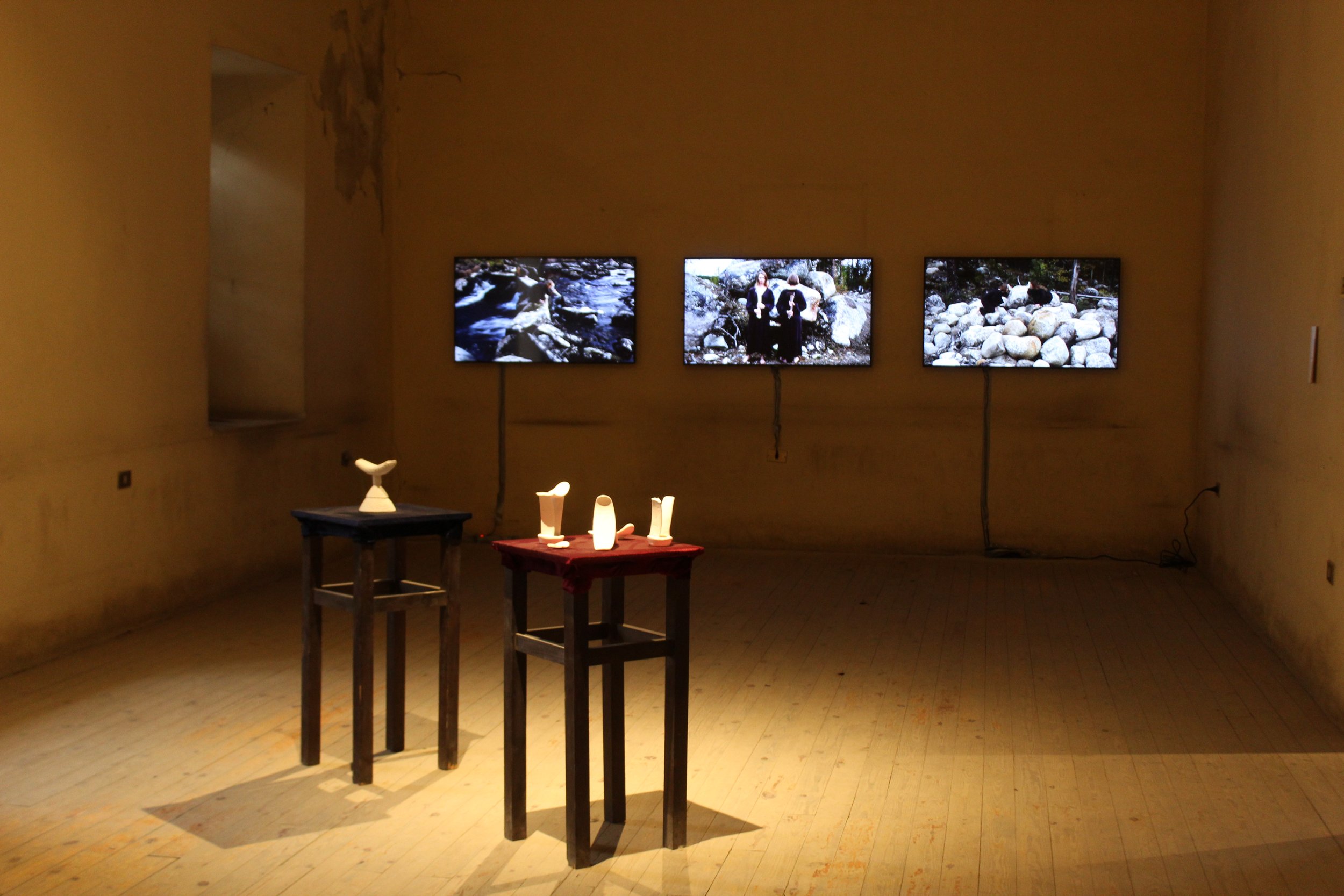
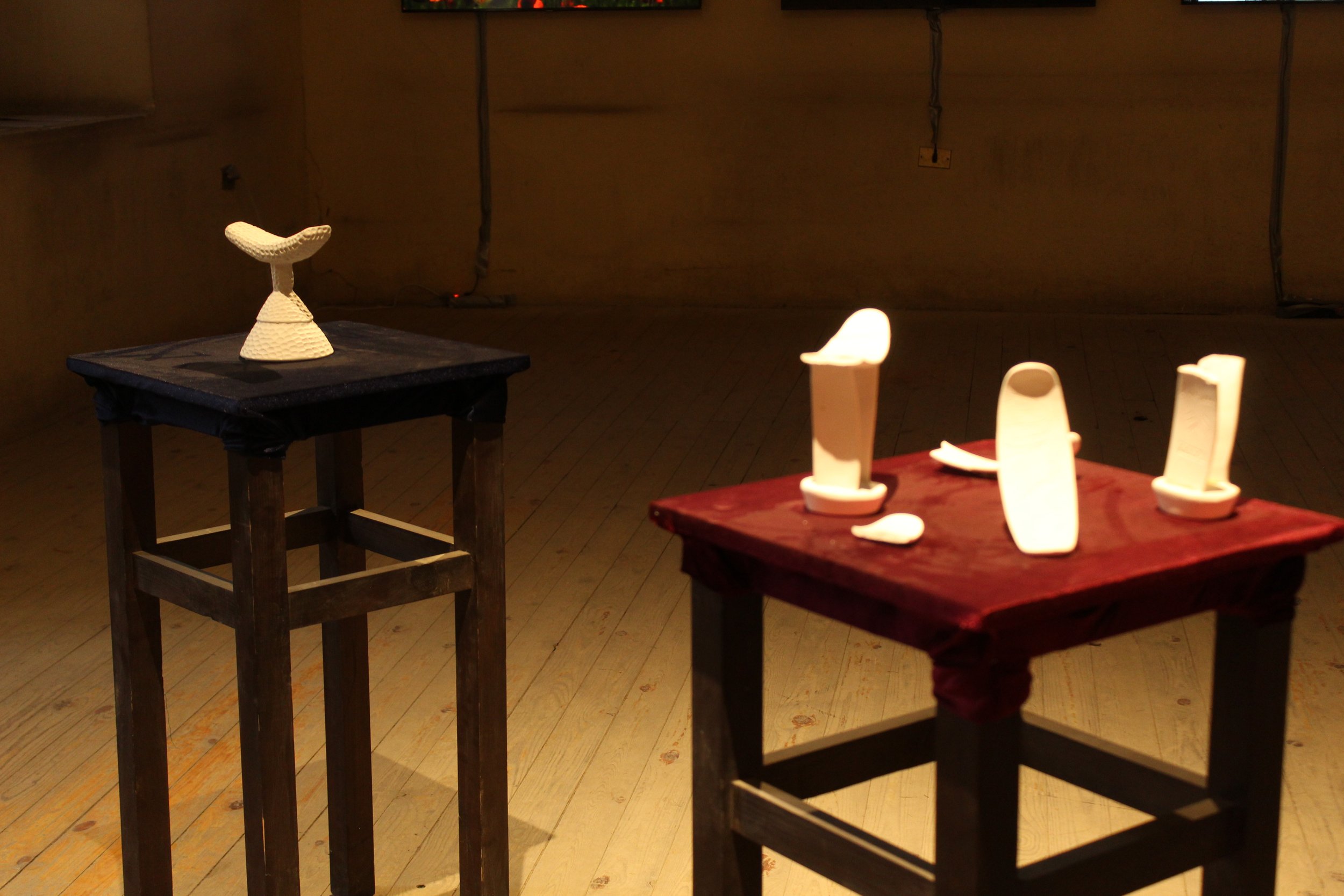
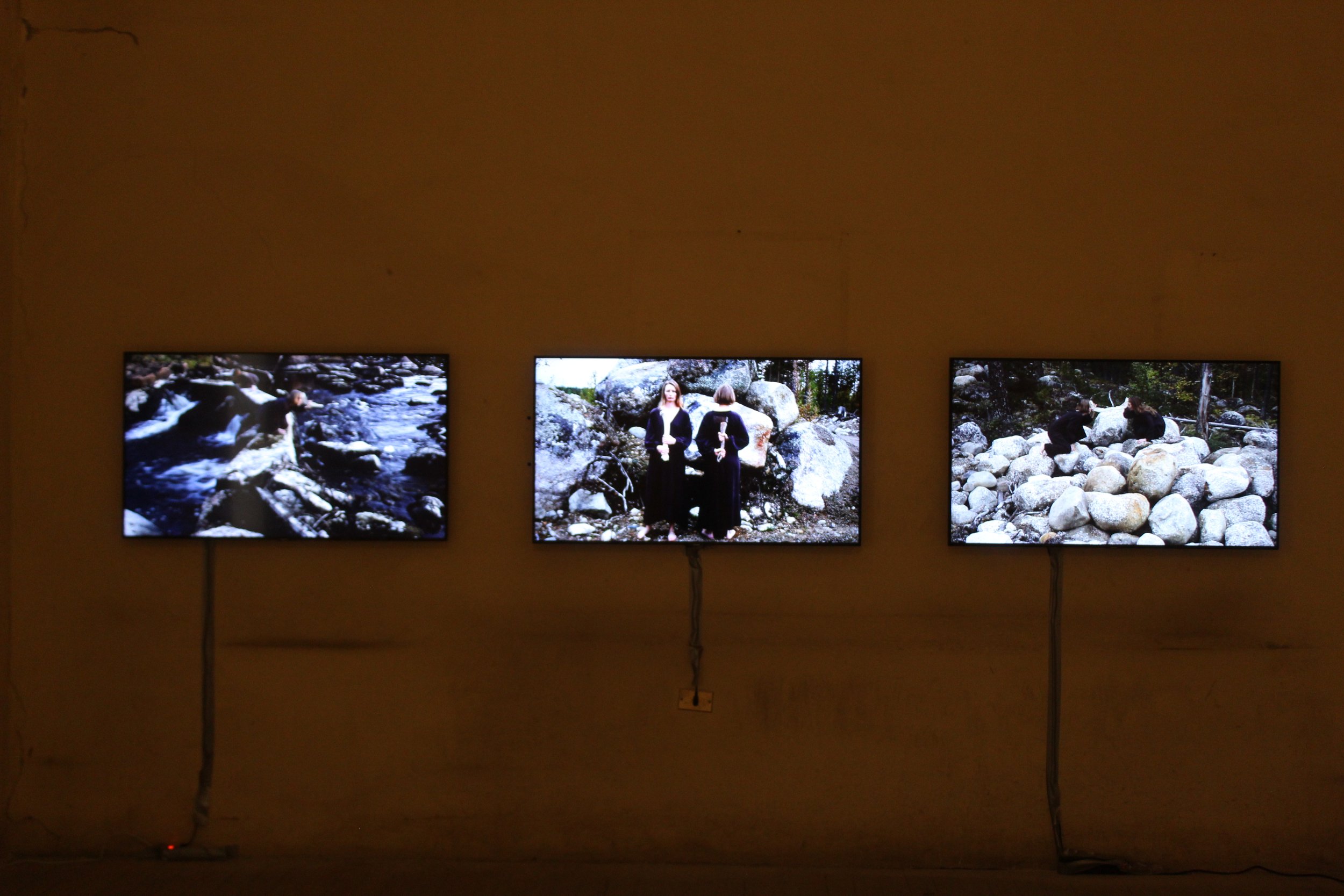
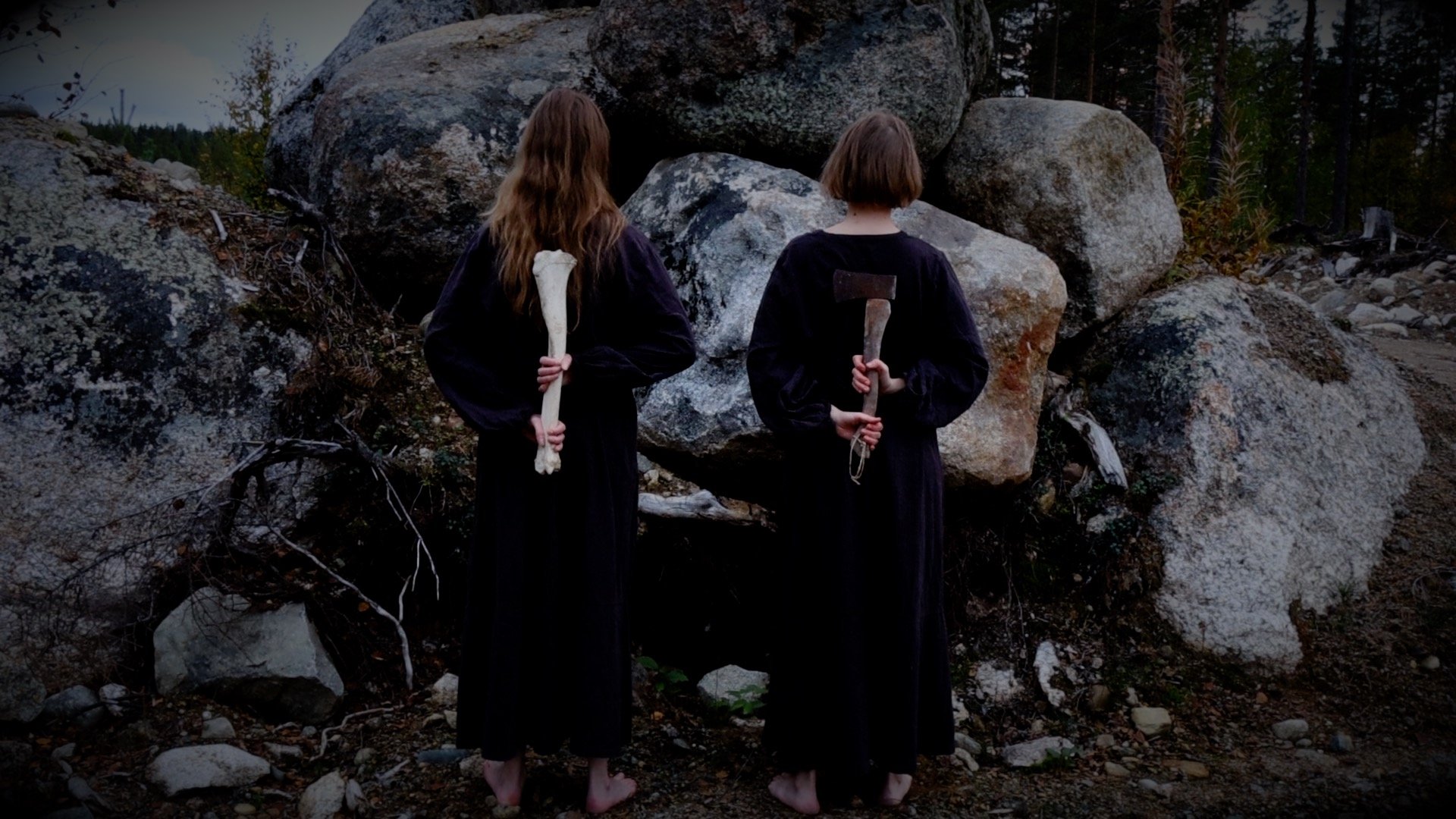
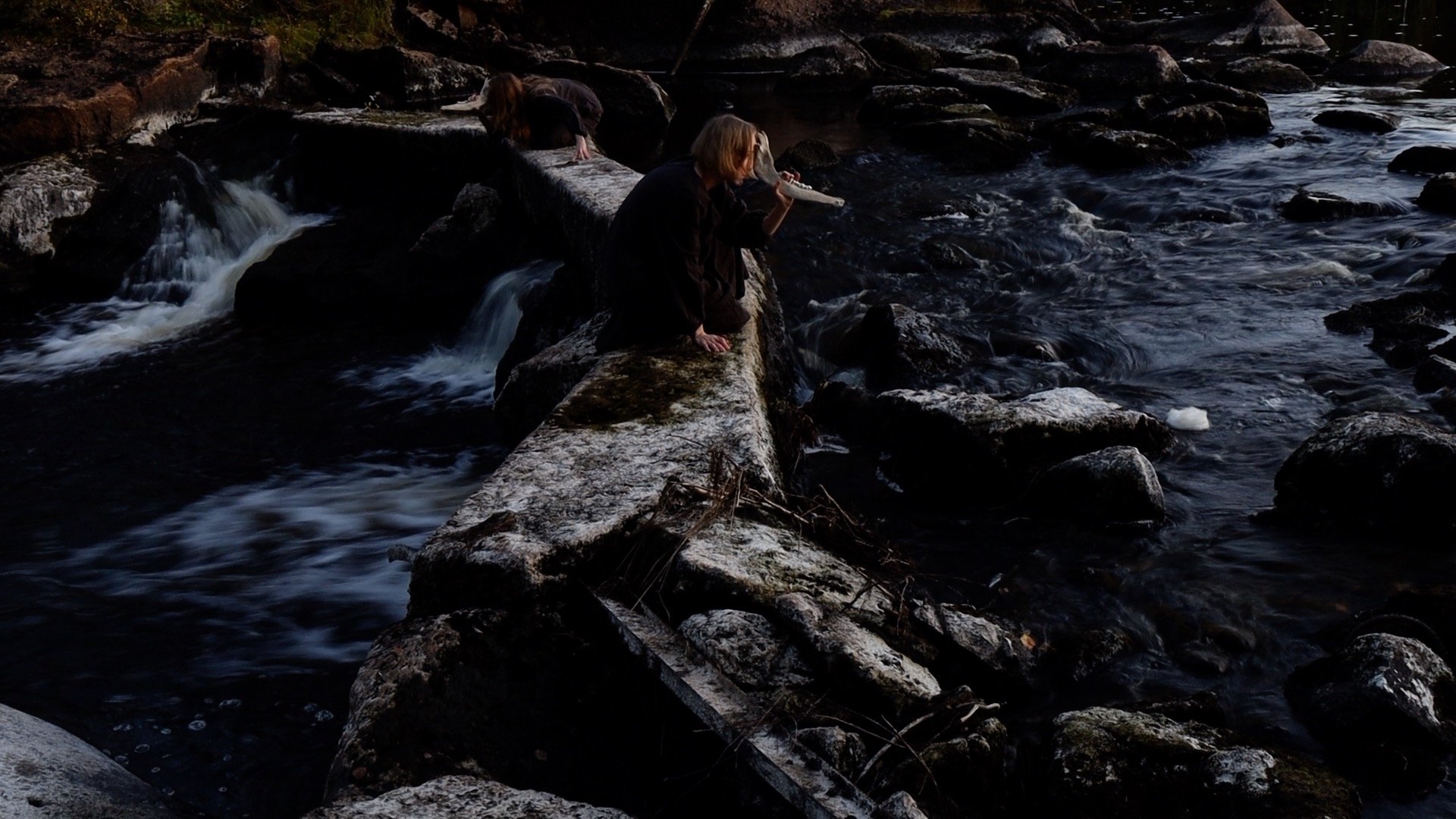
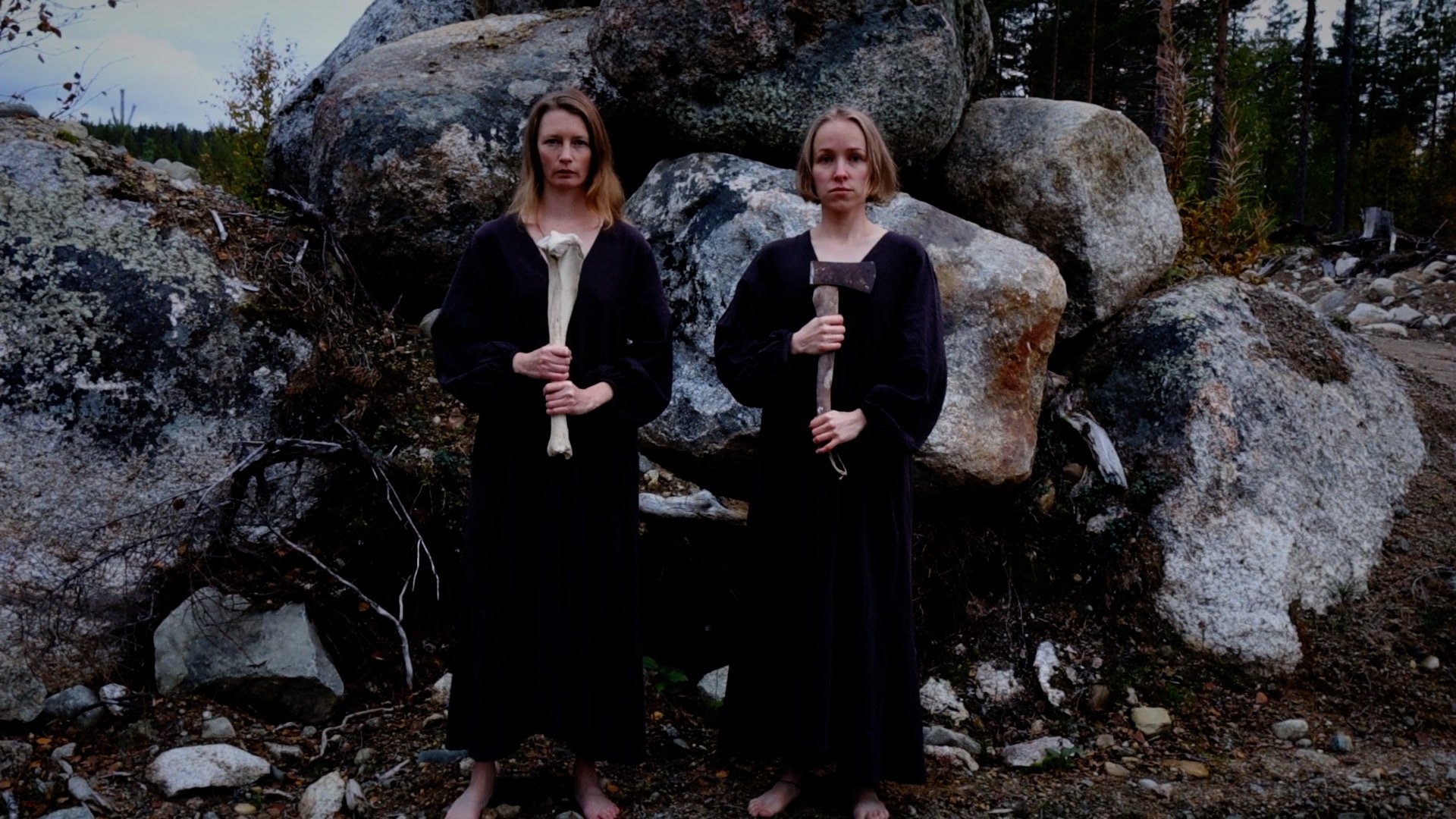
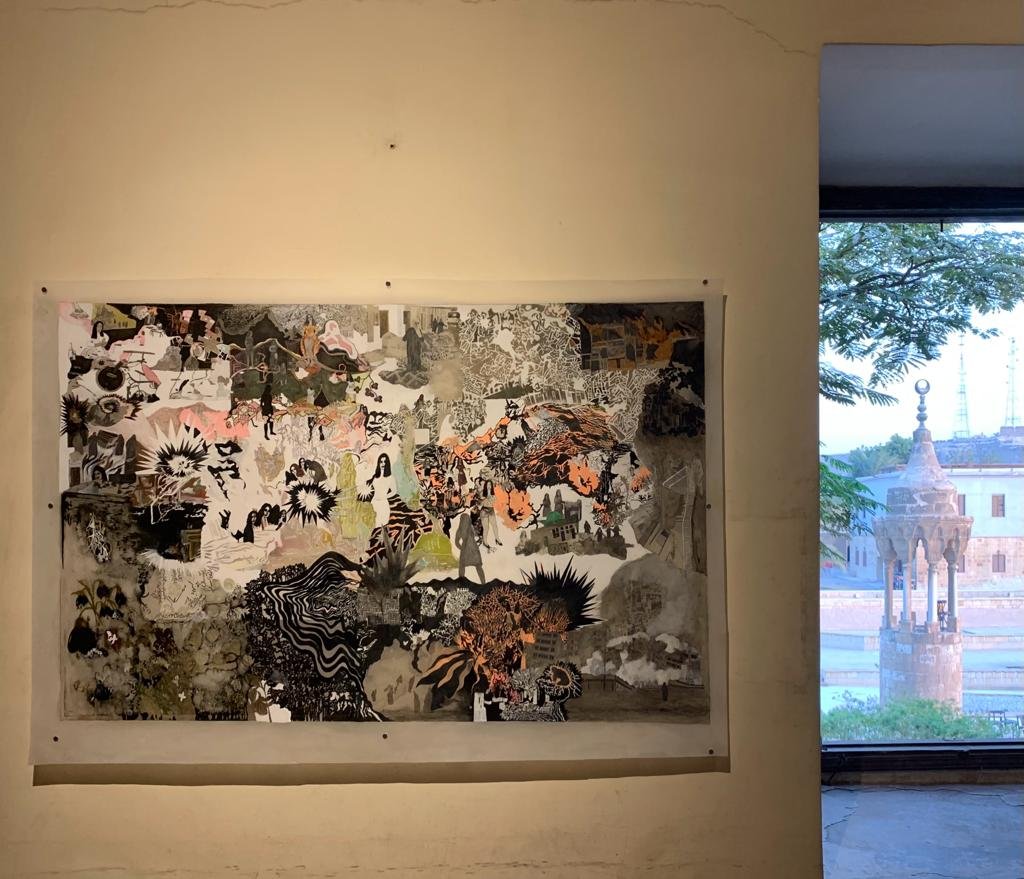
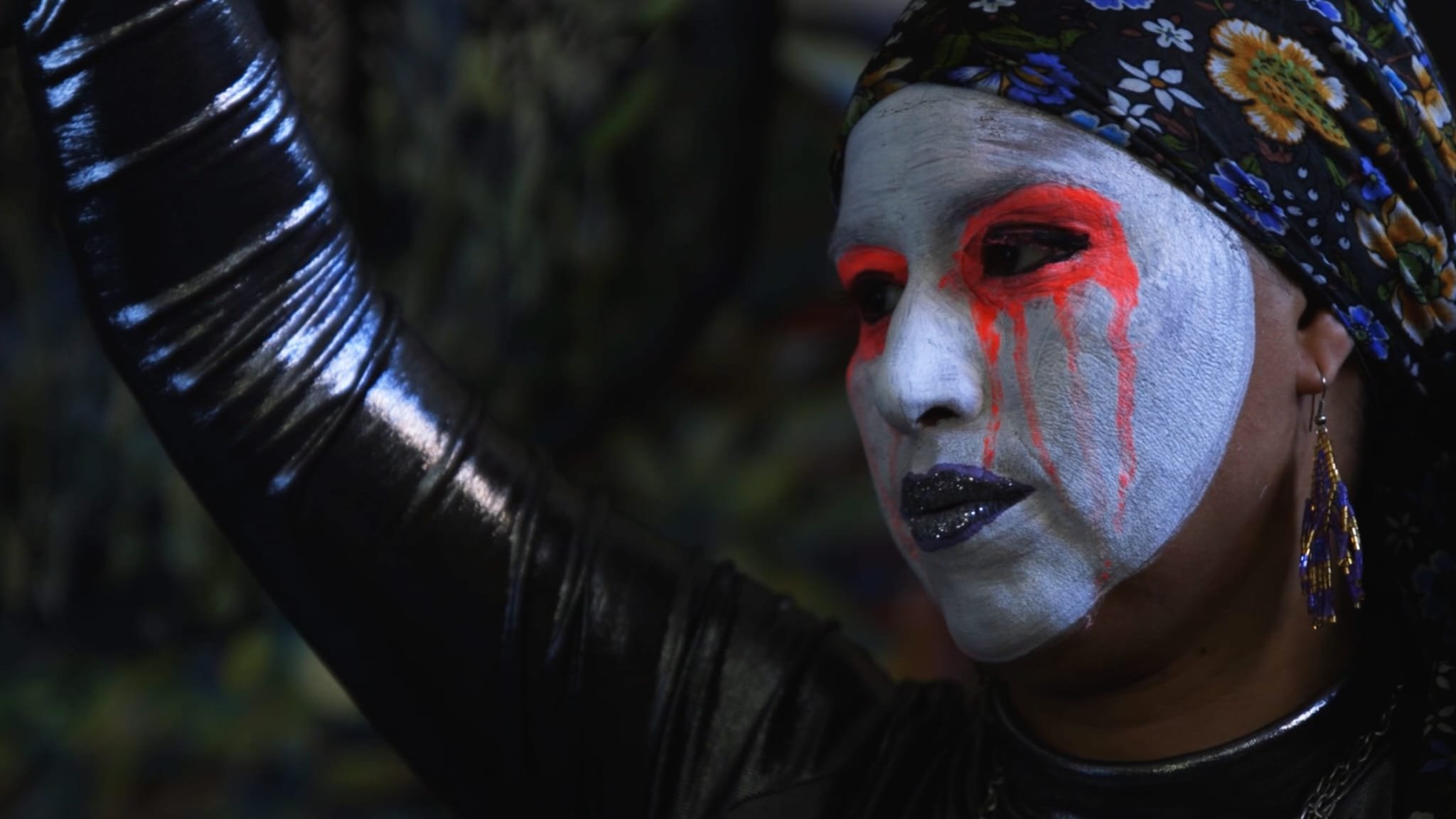
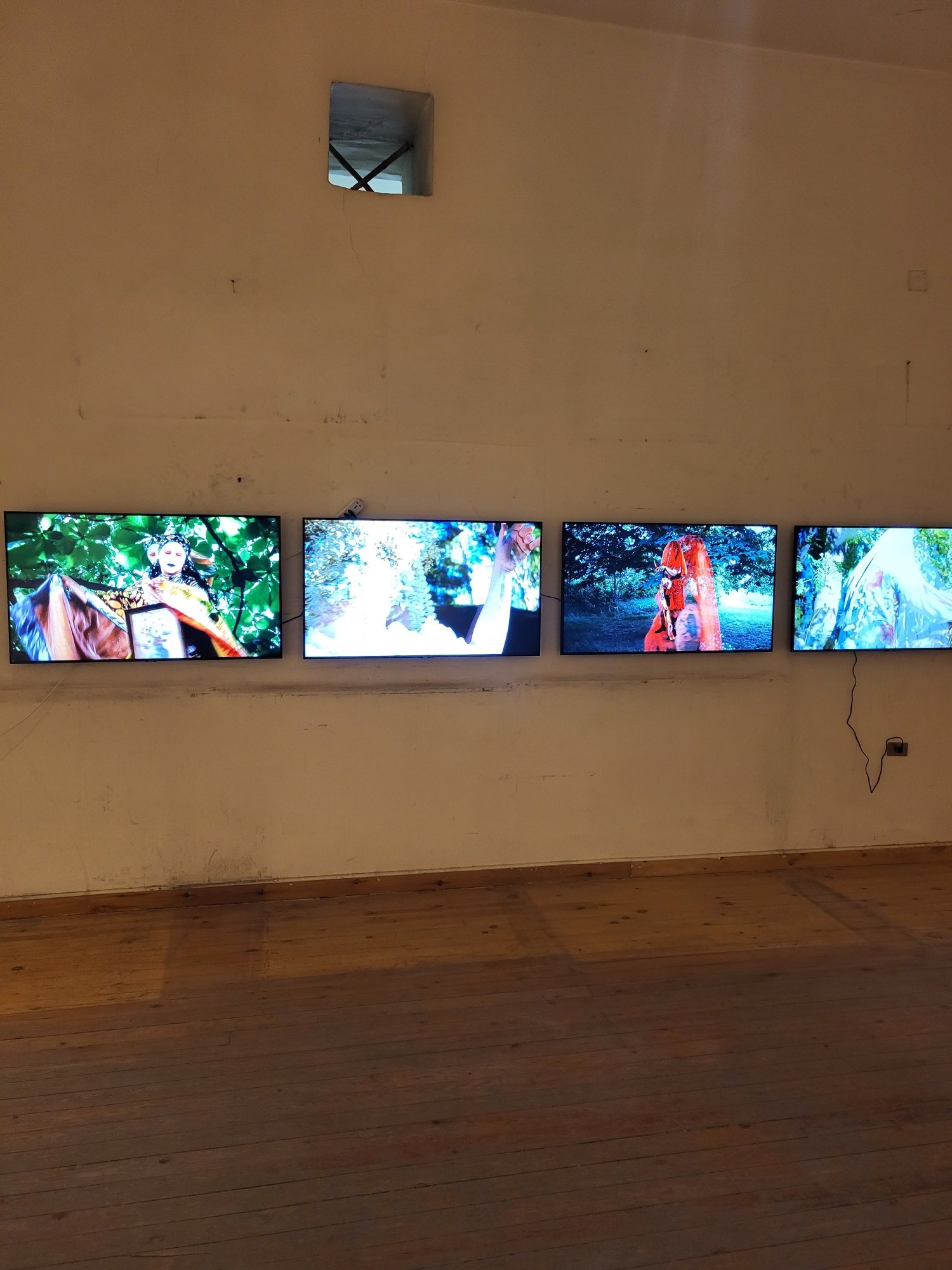
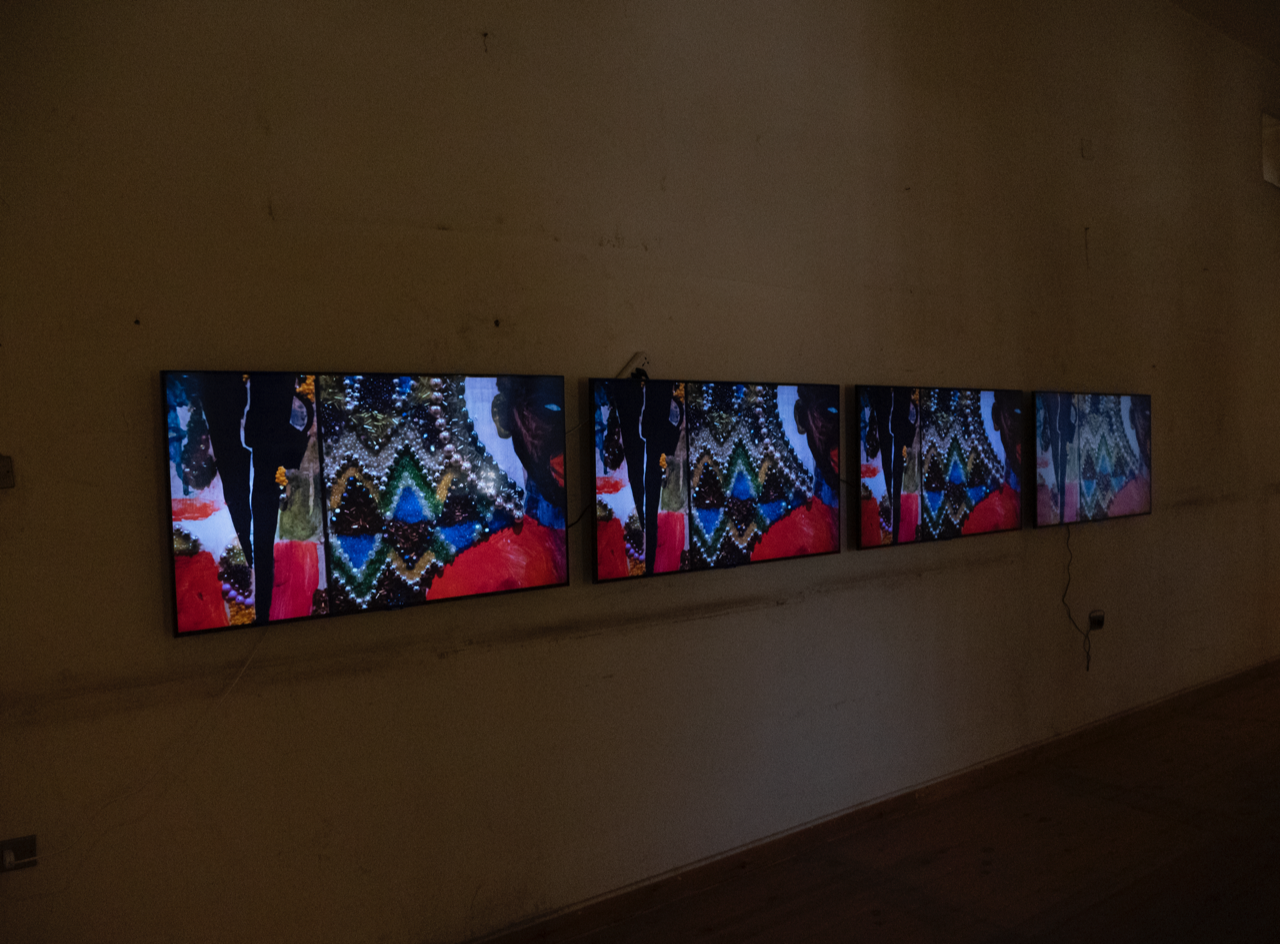
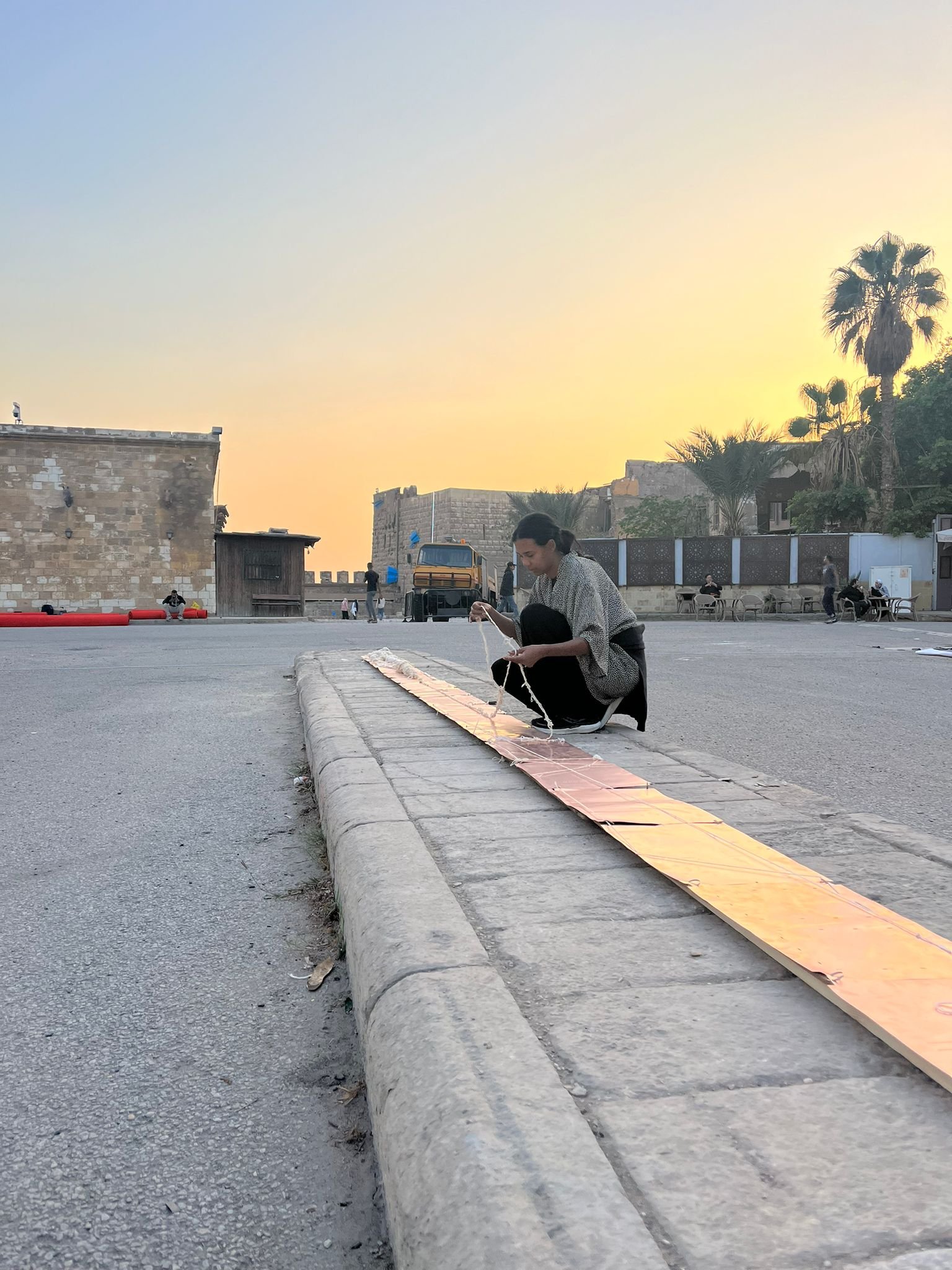
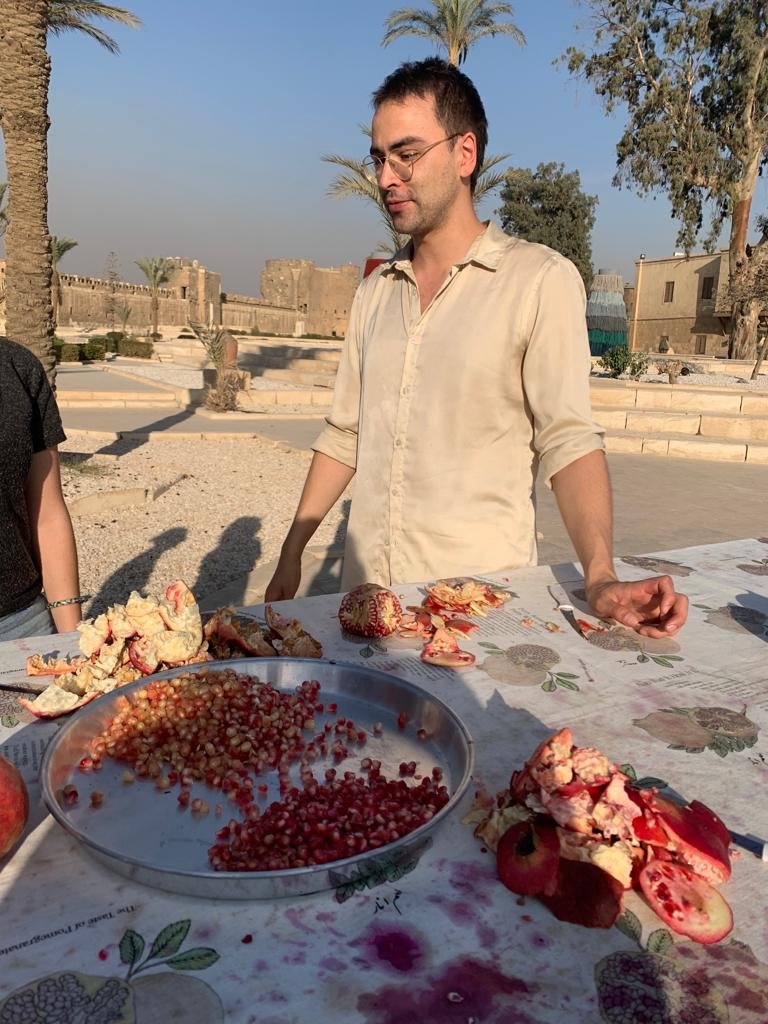
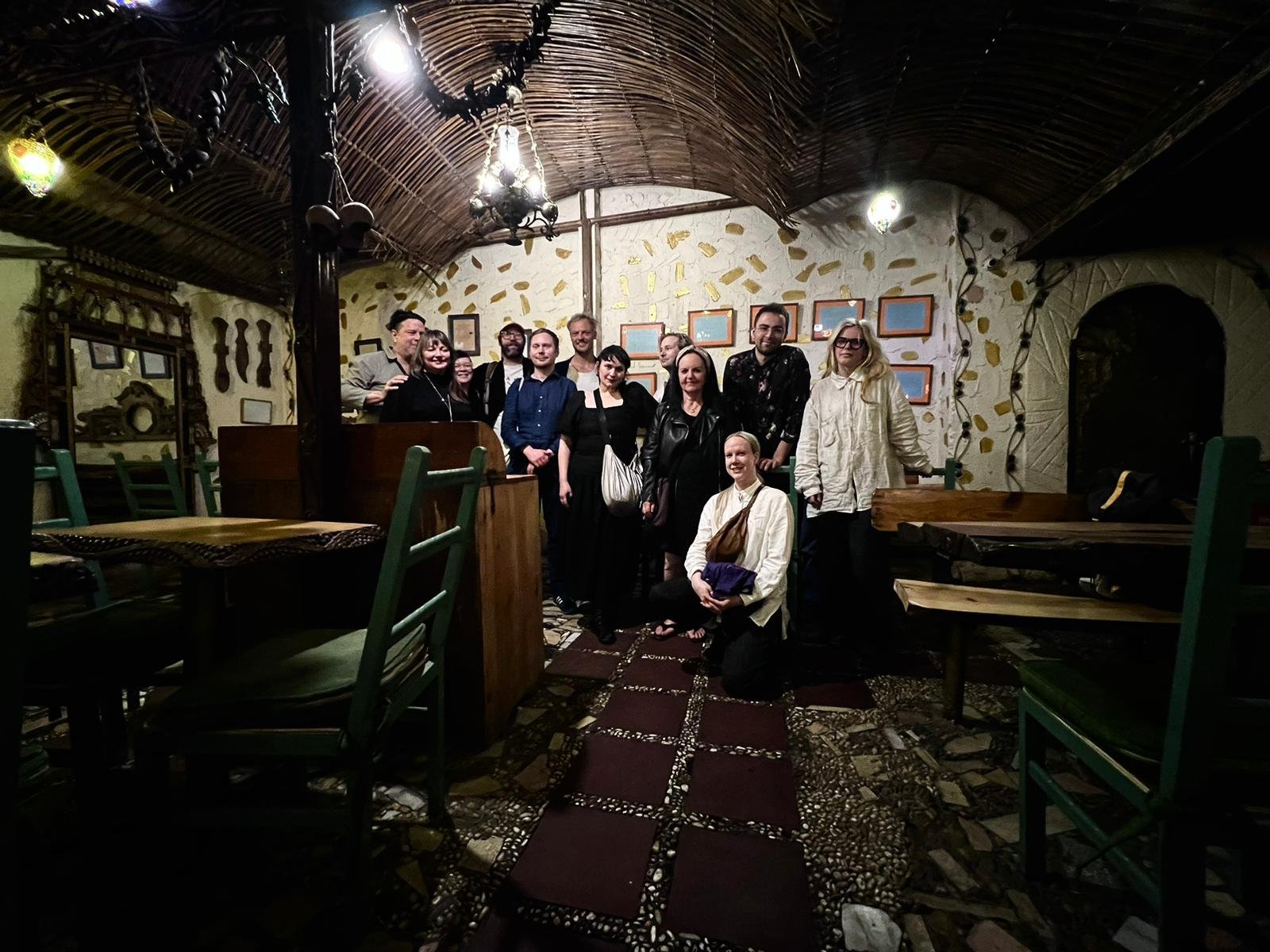
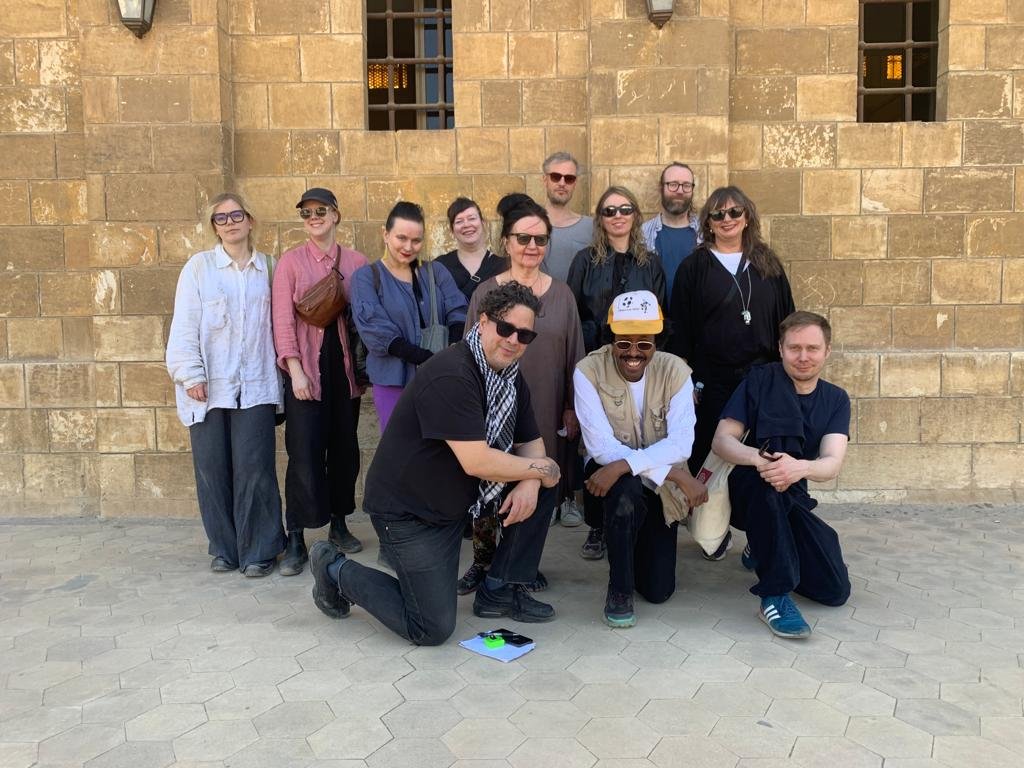
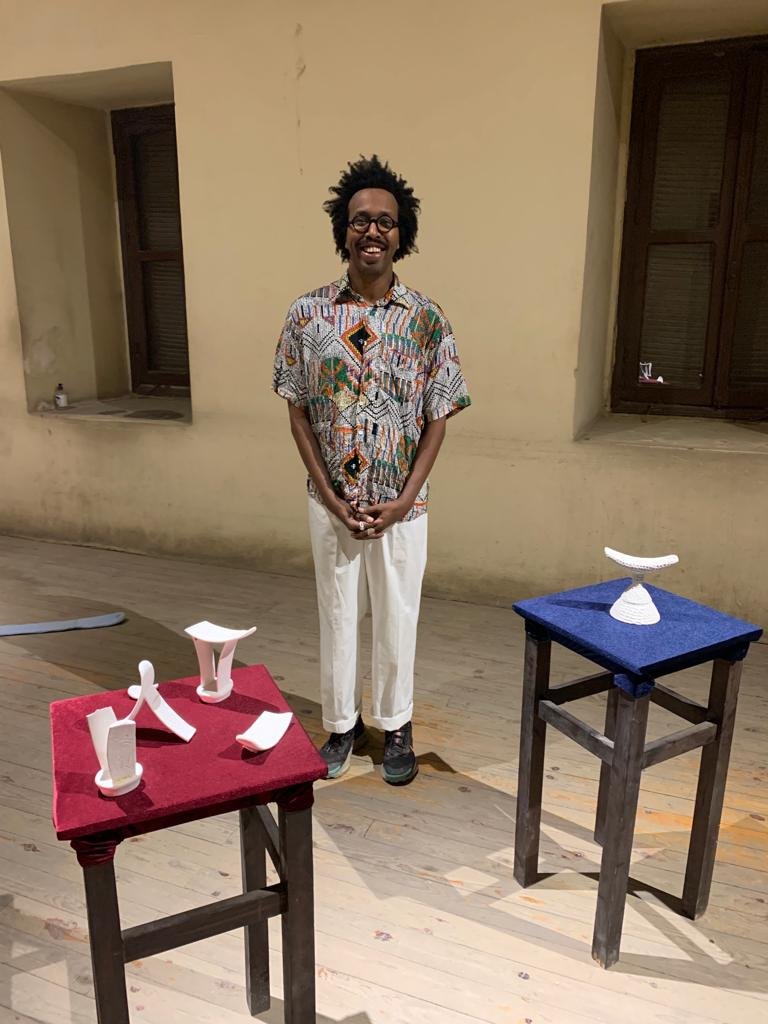
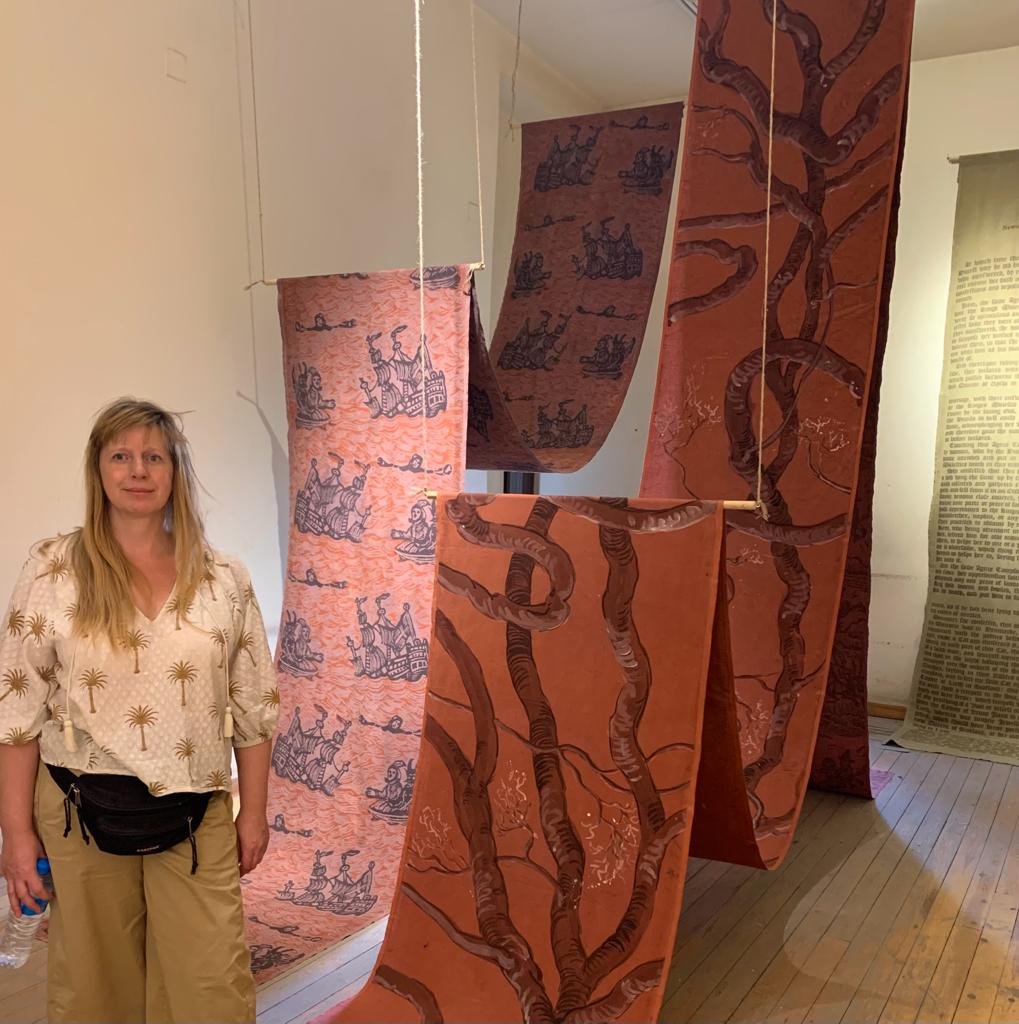
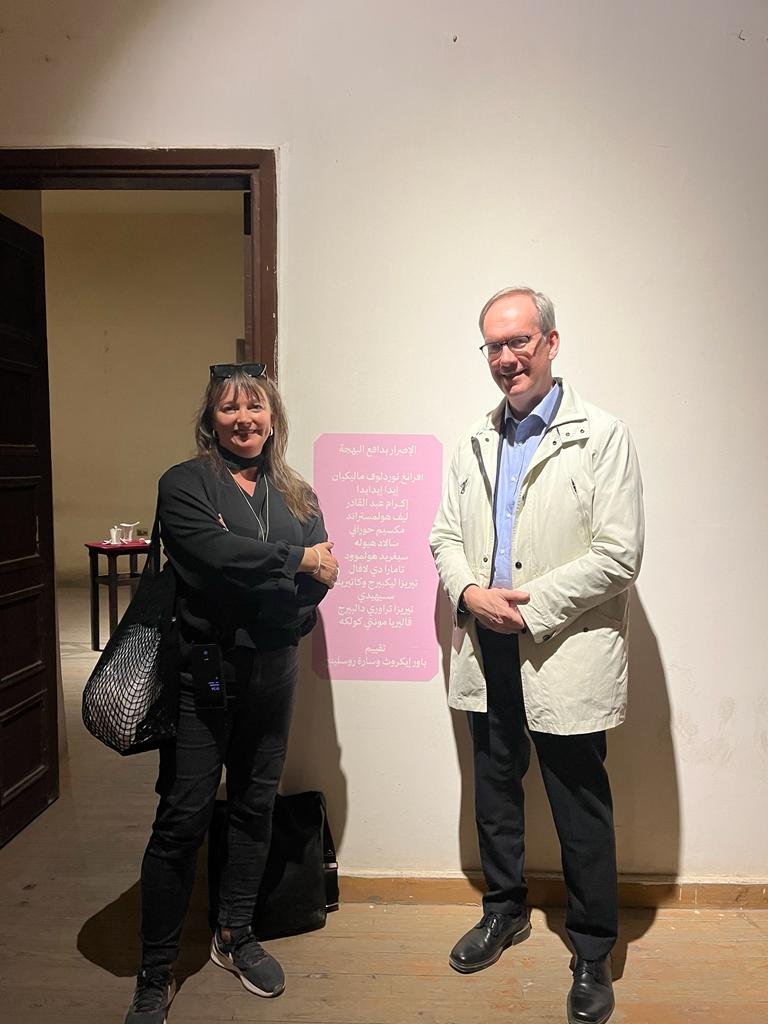
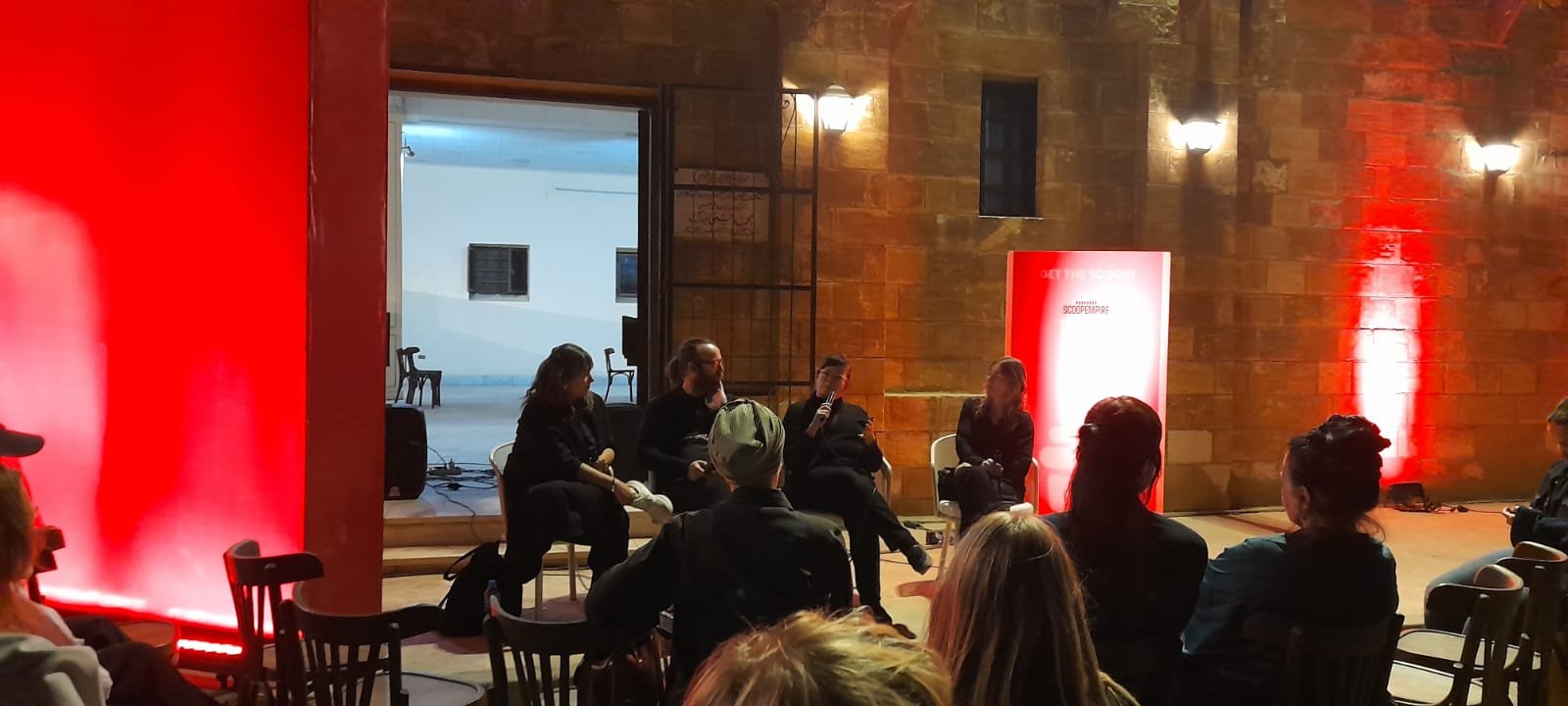
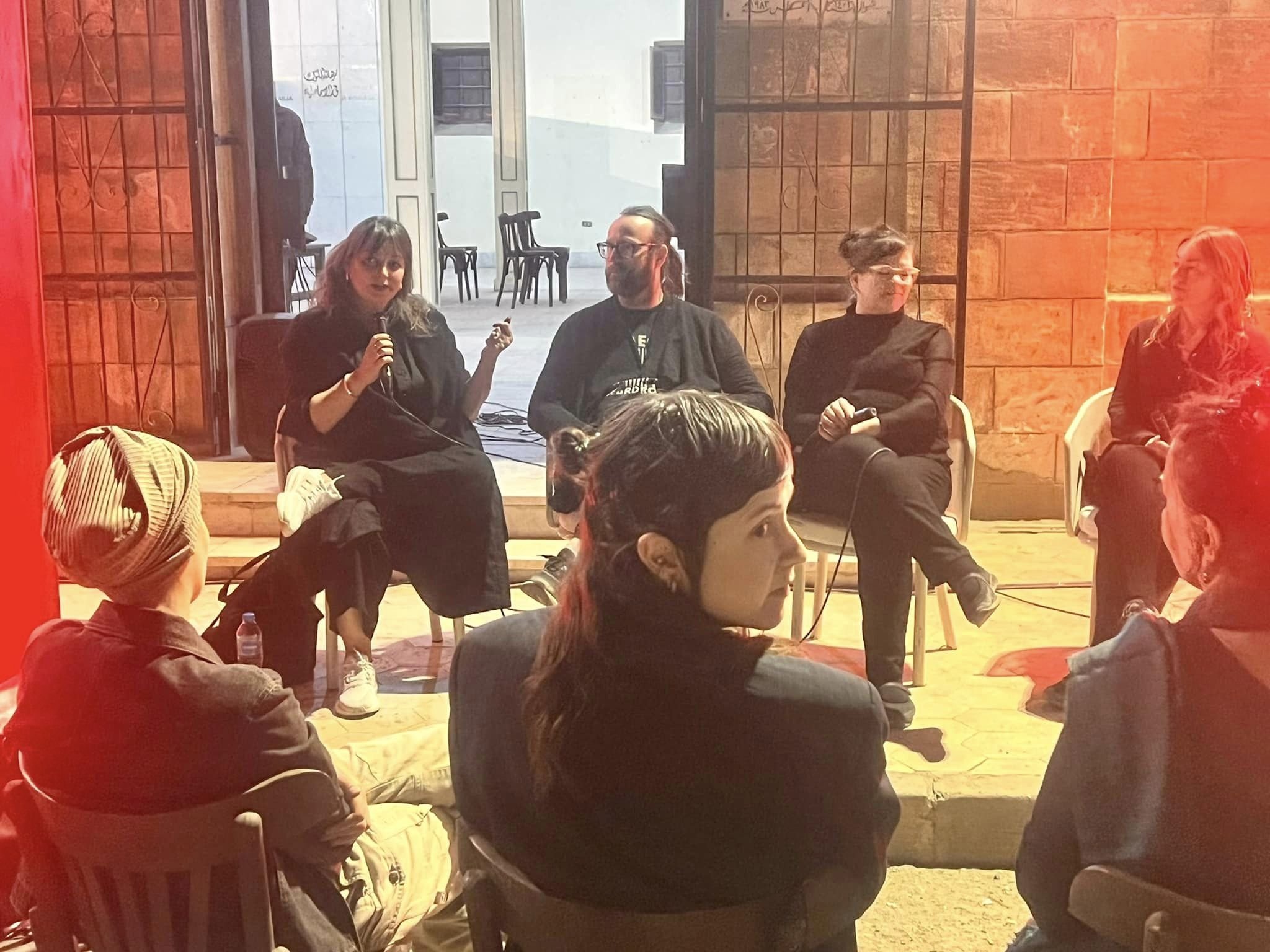
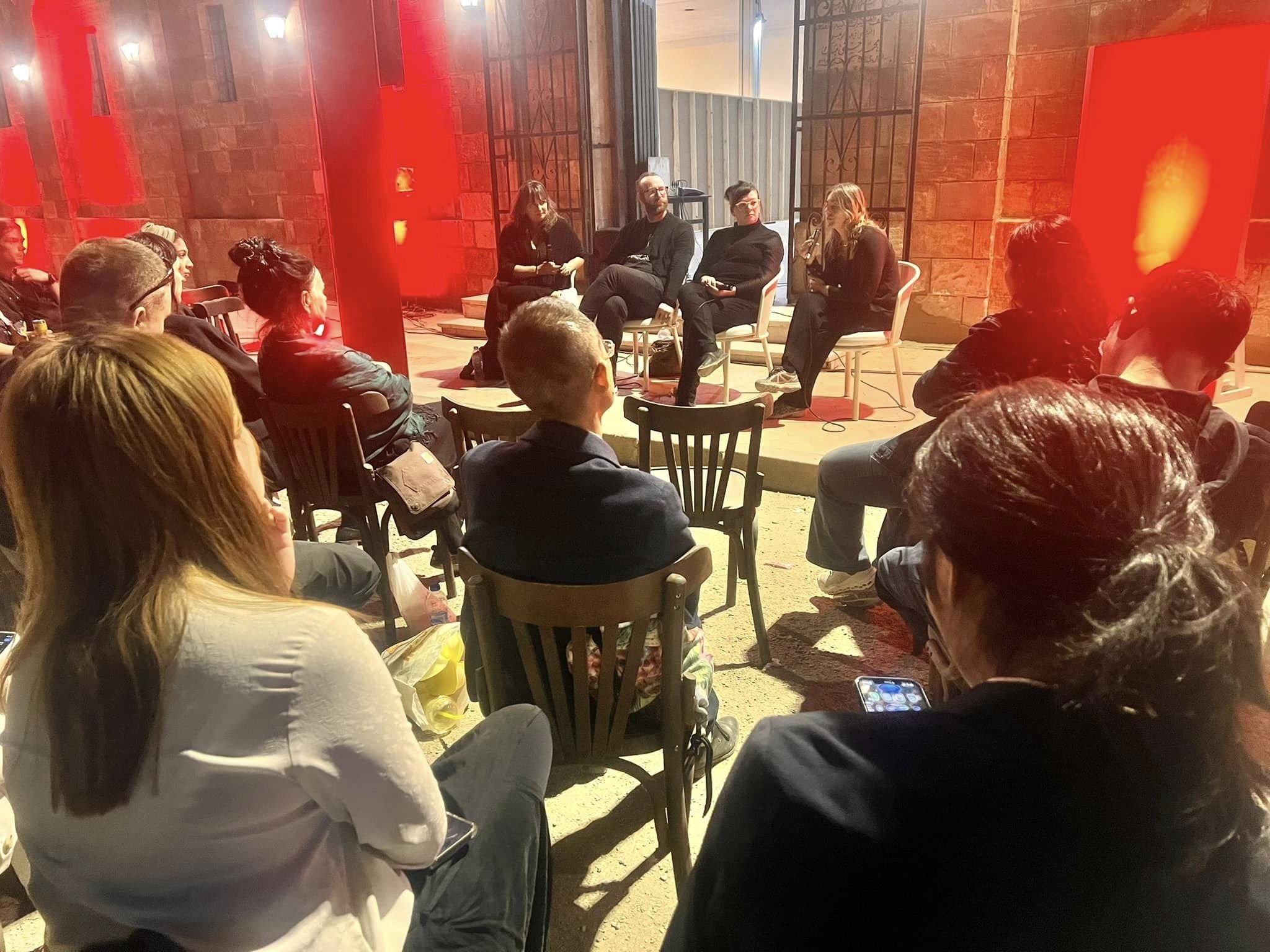
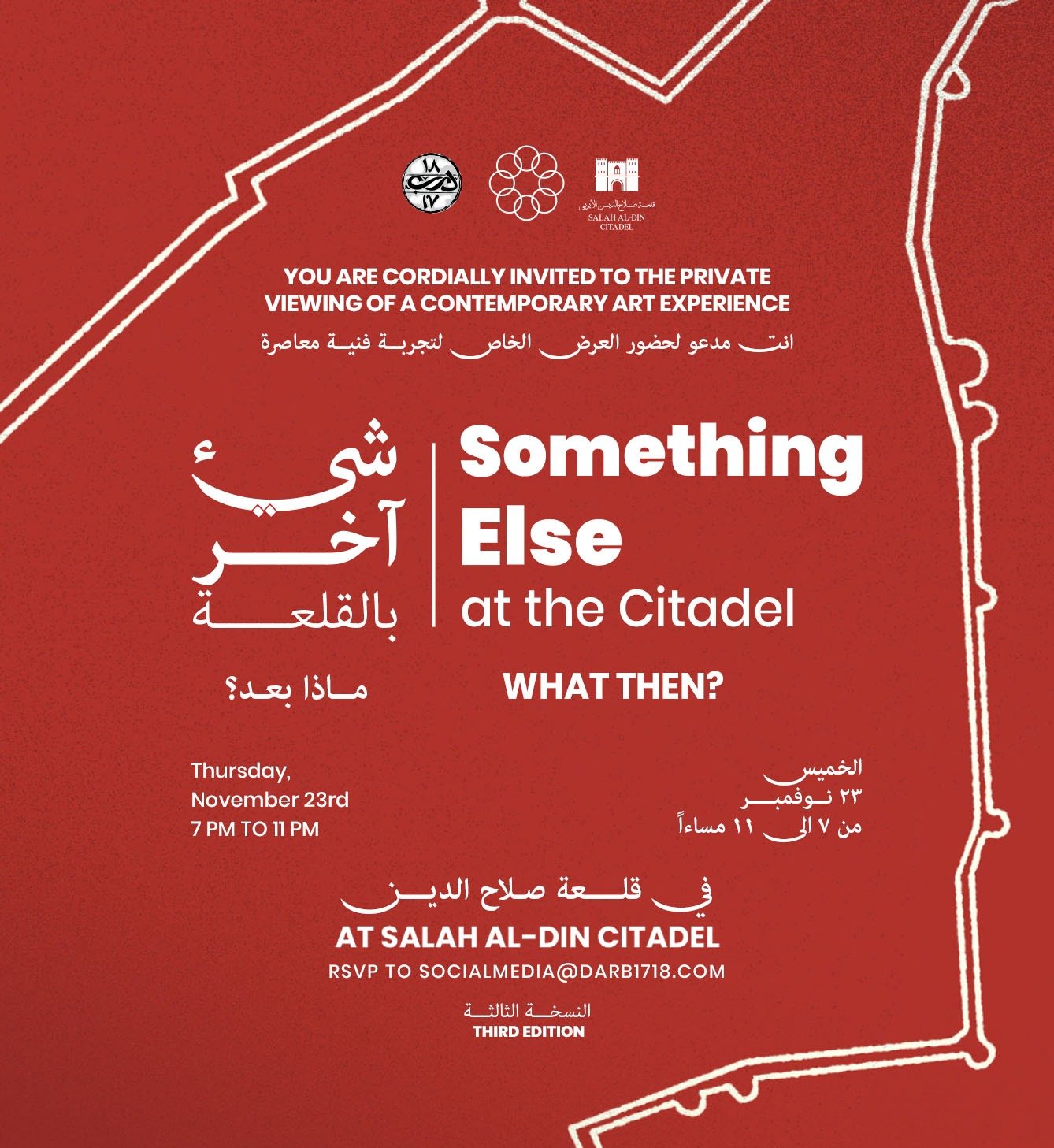
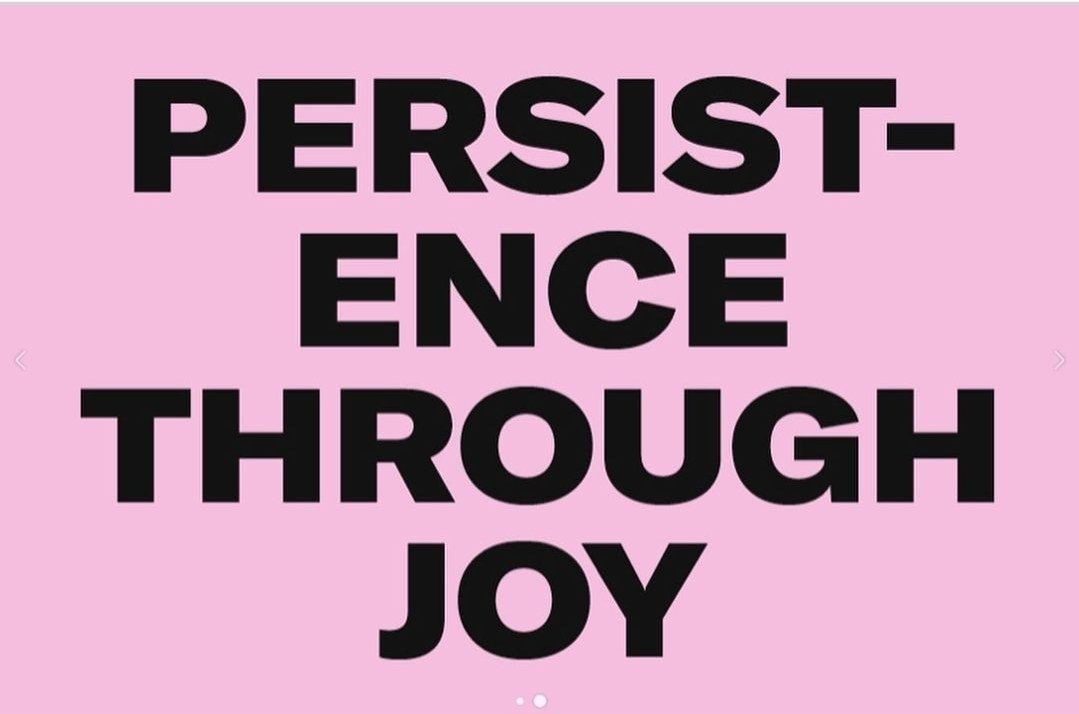
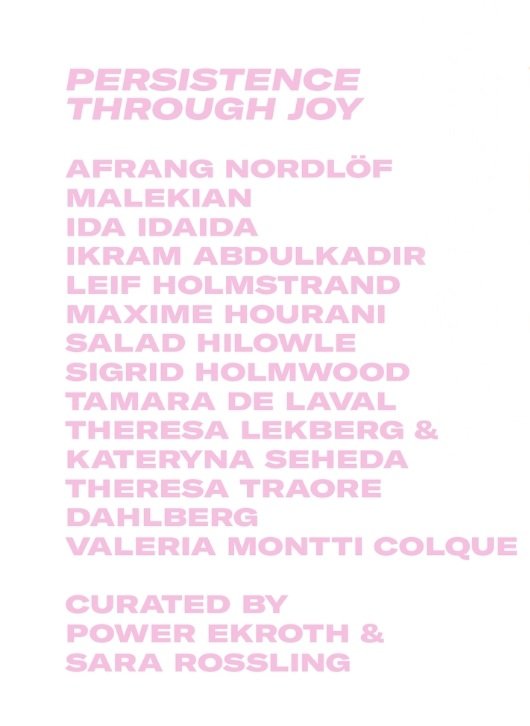
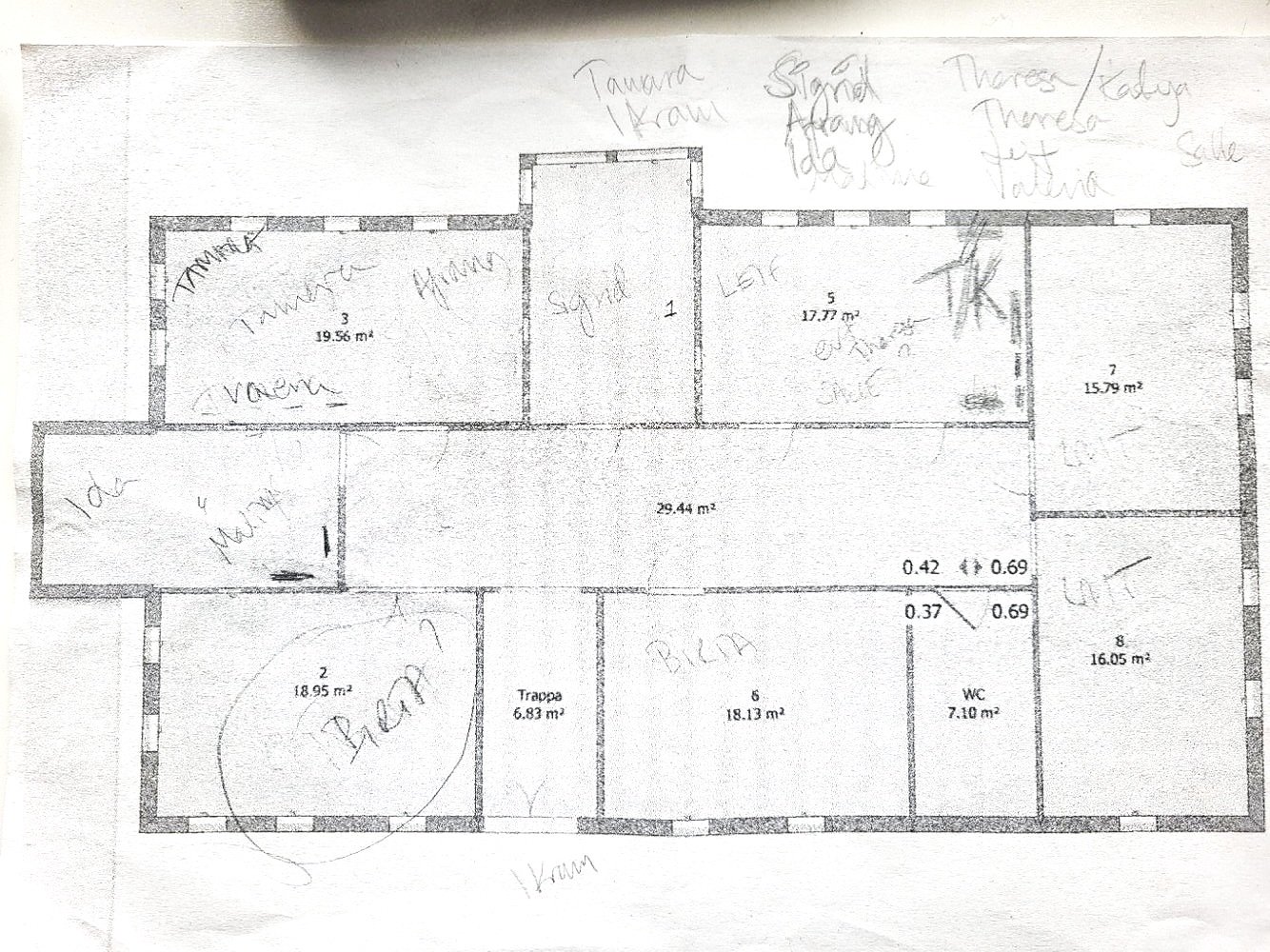
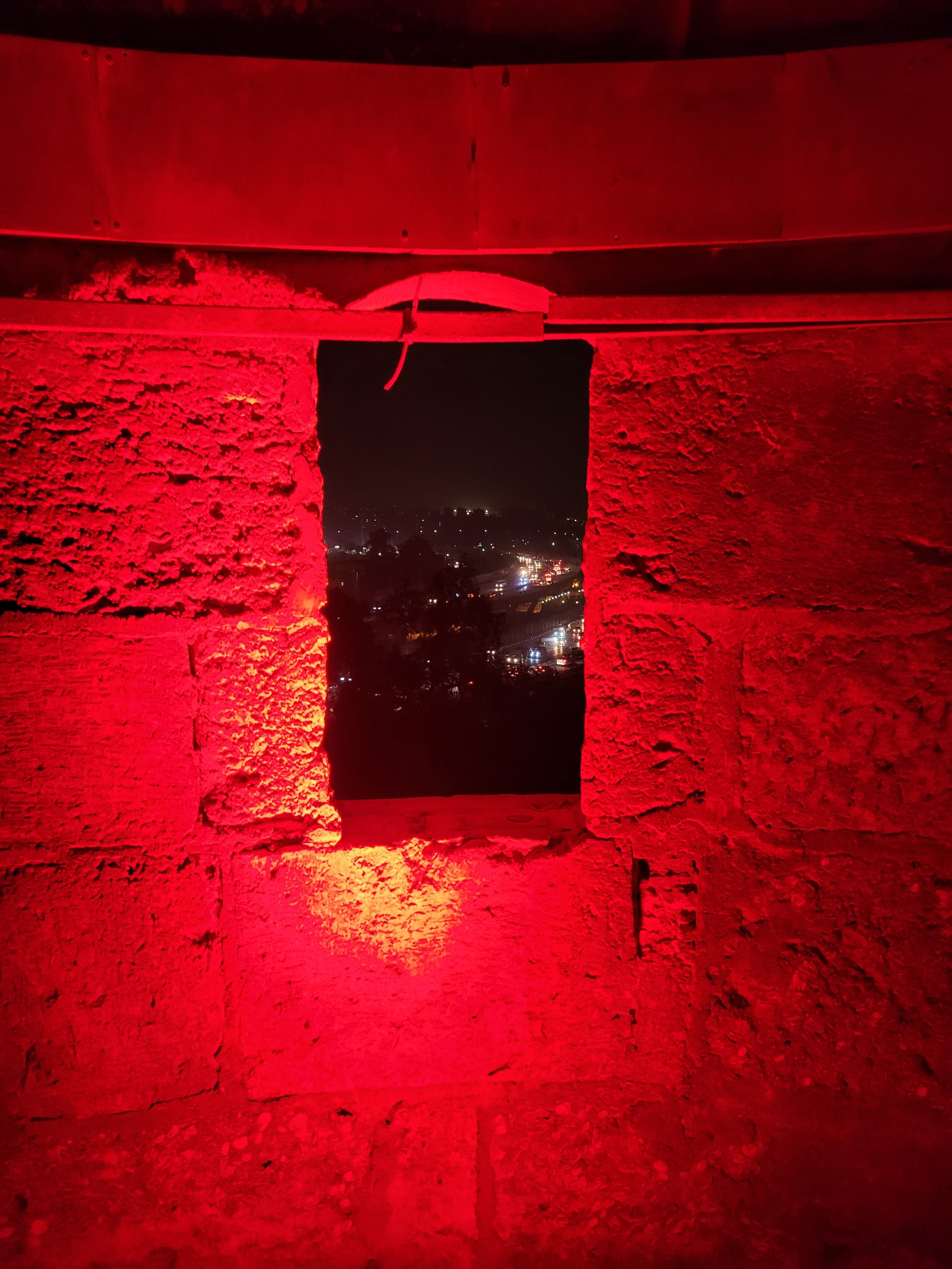
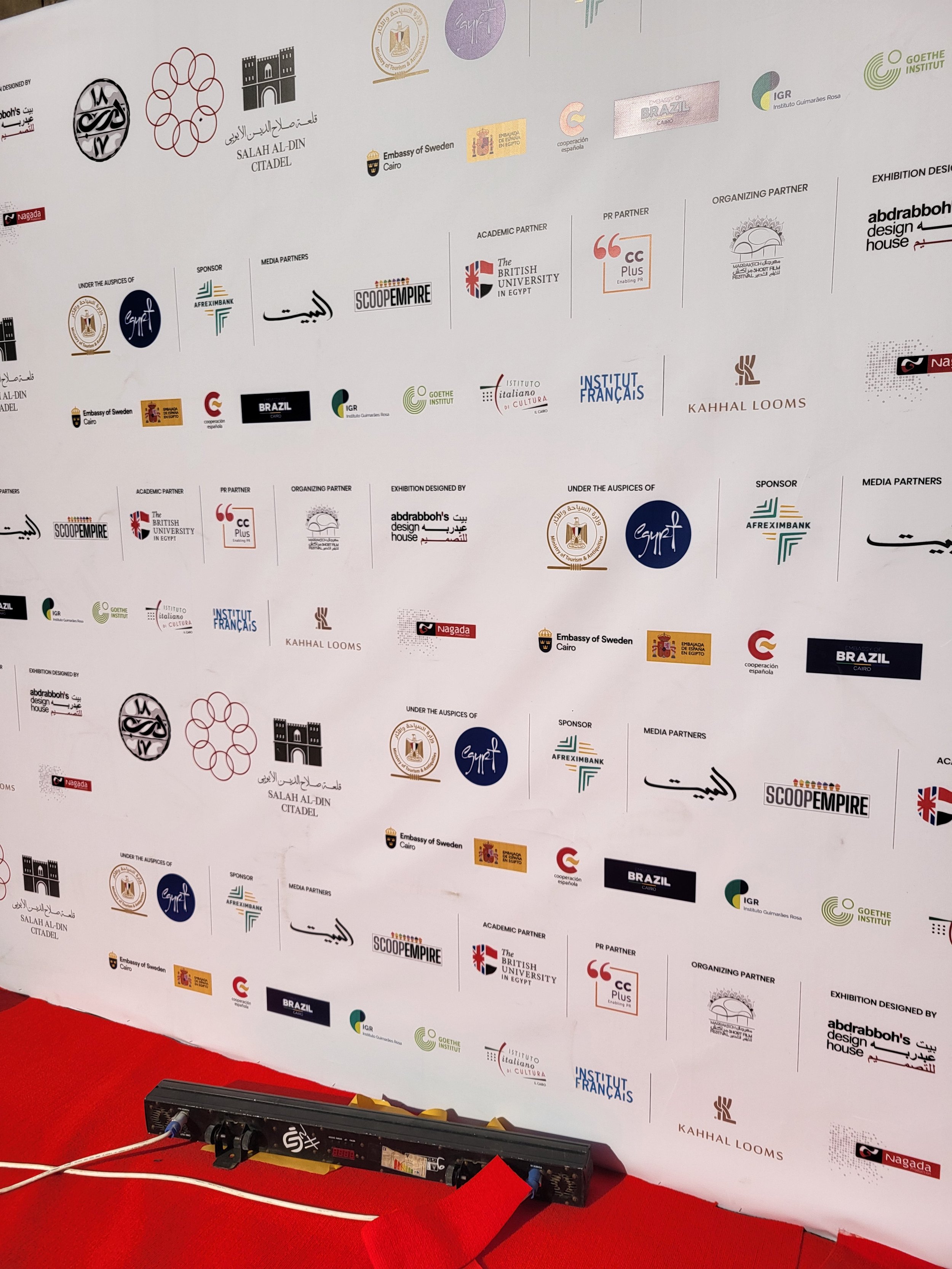
Persistence Through Joy
Power Ekroth
Cockroaches not only possess extraordinary survival abilities, such as enduring nuclear radiation, living headless for weeks, and holding their breath for up to five or seven minutes, but they also have the remarkable capacity to signal fellow cockroaches about potential food sources, enabling them to assist one another. This concept is undeniably inspiring. Among our circle of friends and family, we now use the term 'cockroach' as a verb. For instance, when someone suggests, 'With the government's impending implementation of slimmed-down cultural policies, we should start “cockroaching” right away,' it implies that we, including our fellow cultural workers in the country in question, must find ways to fund our work, even if it means tighten our budgets. Most importantly: we must persist doing what we do and let nothing stop us. This simply because we have to in order to mentally survive, and because it is the only—and right—thing to do. Once one commits to the idea of “cockroaching”, surrendering is simply not an option. Instead, we adapt with resilience and resistance, and, most crucially: to help each other out.
In the cultural sphere, we grapple not only with survival instincts, but also with the very essence of humanity, harnessing both our intellect and emotions. Thus we require something beyond, something that transcends and amplifies our resistance and resilience. Personal, systemic, or structural hardships should not merely be endured; they must be overcome, or at least partially so. While the strategy of unwavering persistence can be a triumph in itself, mere survival often lacks vivaciousness. We need to get angry, we need to get loud, we need to be smart and respond to obstacles in a way that will help rectify things but we also need to live. An exemplary model is the LGBTQ+ community, which seamlessly intertwines politically charged protest with expressions of joy, as seen in their triumphant PRIDE parades. In these parades, all are welcome, and discrimination is forbidden. Solidarity, protest, and joy are woven into a tapestry that embodies the core of collective strength, forging a transformative empowerment in the face of adversity.
Artists and cultural workers' commitment to art is about their commitment to life and humanity, to never underestimate the importance of the right to imagine, create, and distribute diverse cultural expressions free of censorship or interference. This is exactly what we come together to celebrate at Something Else. The joy of dreaming about what is not there (yet), about finding new ways though the unimaginable, to inspire and envision hope and utopia – together.
The unique platform of the Off Biennial Something Else transcends barriers of language, culture, and background, making it a powerful tool for promoting inclusivity and building bridges across diverse communities. It allows artists from different corners of the world, with very different backgrounds and walks of life to come together to celebrate art and life. This is a joy that can provide a potent source of inspiration that fuels creativity and allows artists to produce work that speaks to the human experience – or even challenges societal norms.
Like the resilient cockroach, cultural workers come together, signaling to one another, sharing resources, and finding ways to not only survive, but thrive . This exhibition is a testament to the commitment to our shared cause, and a celebration of the human spirit's capacity to find joy, even in the most challenging circumstances. 'Persistence Through Joy' is a reminder that in unity and joy, we find the strength to overcome, to imagine, and to inspire.
Persistence Through Joy
Sara Rossling
The joy of collectively coming together around a table, sharing food, a political manifestation, or a festival is a yearning for togetherness and curiosity, celebrating a joint moment without necessarily sharing the same perspectives. Large-scale cultural events are commonly described as transformative experiences by those participating, bringing feelings of connectedness and a willingness to help others. In a period of abrupt changes, uncertainty, and media scaremongering about the future, gatherings in public are more crucial than ever to fuel a plural society, meet others, and disseminate thoughts. Following a pandemic, the worst thing we can do to ourselves is to continue to 'keep our distance' and stay in isolation.
On a deeply female and spiritual plane, writer, philosopher, and activist Audre Lorde writes in Uses of the Erotic: The Erotic as Power, "The sharing of joy, whether physical, emotional, psychic, or intellectual, forms a bridge between the sharers which can be the basis for understanding much of what is not shared between them, and lessens the threat of their difference." Lorde acknowledges the transformative nature of collective joy and how it builds relationships beyond place and culture. Something Else Off Biennial, Cairo operates on a similar logic of what community in art can do by bringing artists, curators, and audiences from all over together at the medieval Islamic Citadel of Saladin. Overviewing the city, on top of the Mokattam mountain, the historic fortress Citadel resembles a town on its own. Inviting the off-biennial to this landmark site says something important about trust. The city hosting the biennial allows the Citadel and its architecture to become something else that brings forth new ways of being, artistic visions, and future imaginations.
From a Swedish perspective, in autumn 2023, trust is at stake, as individuals' trust in public society is threatened. The Swedish government has proposed a new law that requires public employees to report individuals without a residence permit. The law will restrict undocumented migrants' access to their fundamental human rights. If implemented, this will undermine democracy and significantly diminish trust in state institutions. It will scare people from joining public events and visiting public hospitals, schools, and libraries, thus not having the possibility to get aid, education, or meet others. The social exclusion will worsen for these people, already 'invisible' and fragile in society.
In ancient Egypt, inspired by the cycles of nature, the Egyptians saw time in the present as a series of recurring patterns. The myths describe the actions of the Egyptian gods as a means of understanding the world around them. Festivals and religious ritual offerings to the gods were essential to handling the unknown future. From a secular view, we know it is not gods who rule the future. With an understanding of the smallness of humans here on earth and a large portion of imagination, it lies in our hands to push for social justice and change. Looking back at our ancestors' decisions and actions from where we are standing in our current time of several new global challenges, the biennial asks us: What then?
Our task is to encourage each new generation never to stop taking their rights to the commons and speak up for everyone's right to public space — go out, see with your own eyes, seek answers to your questions, make acquaintances with strangers, and share joy. Persistence in the cultural sphere is not about protecting conservative traditions. Rather, it is about the importance of recurrent creativity in the public as a strategy despite difficulty or opposition. So, let's call out our inherent power that Lorde refers to as "a resource that lies within each of us, firmly rooted in the power of our unexpressed or unrecognized feeling." And let's collectively celebrate the potential of the unknown tomorrow to withstand dark speculations about the future.


